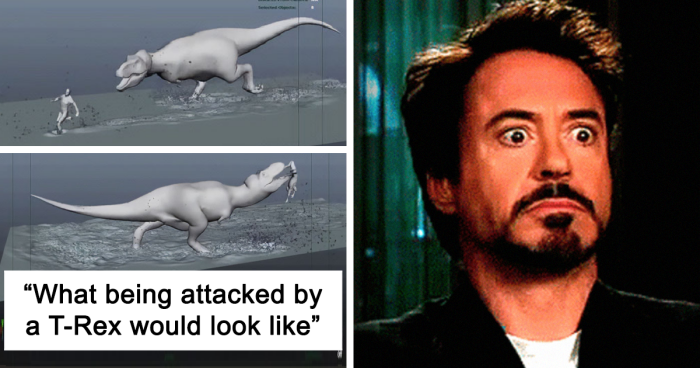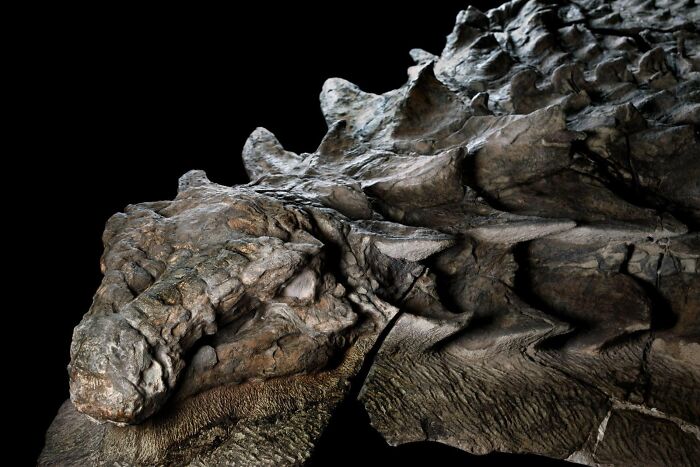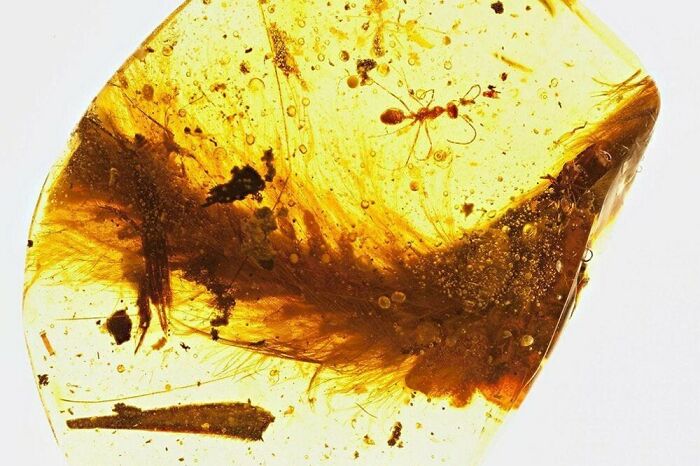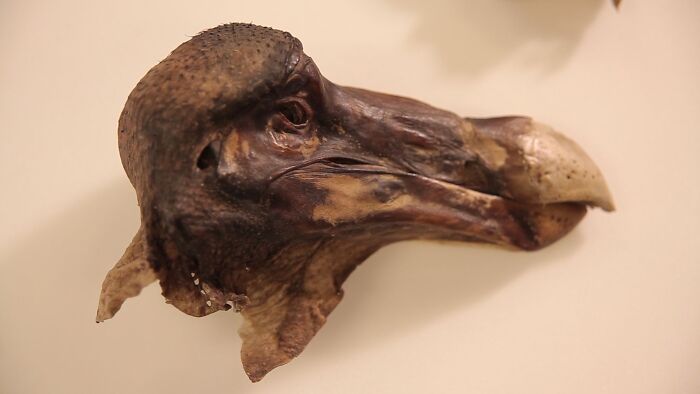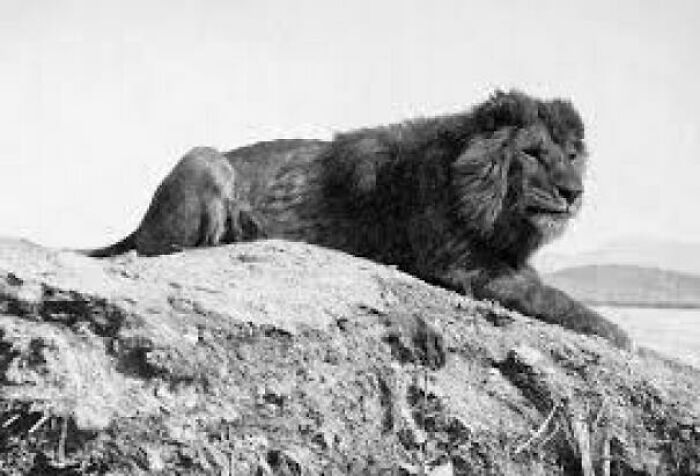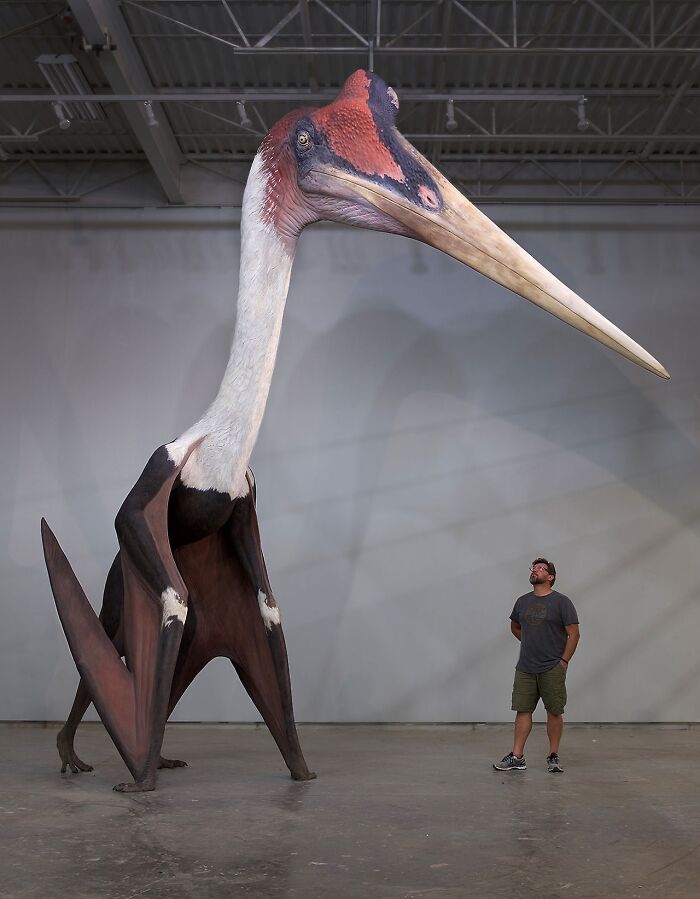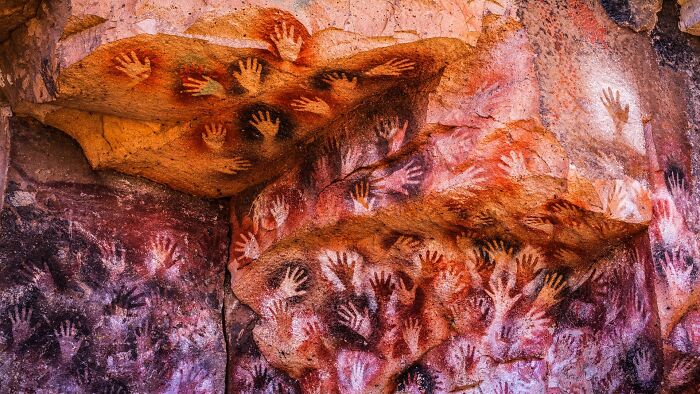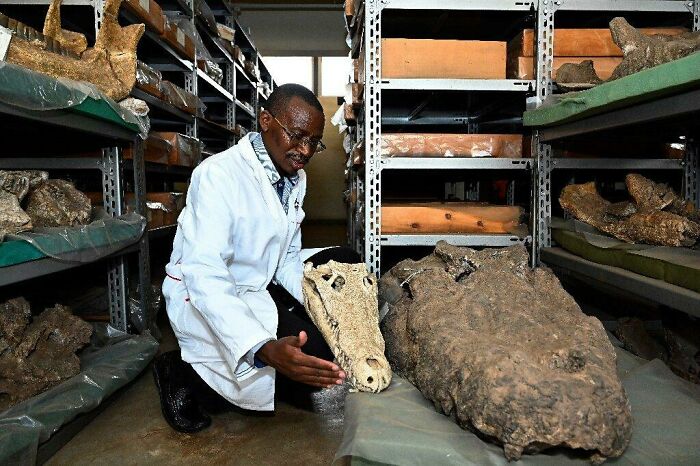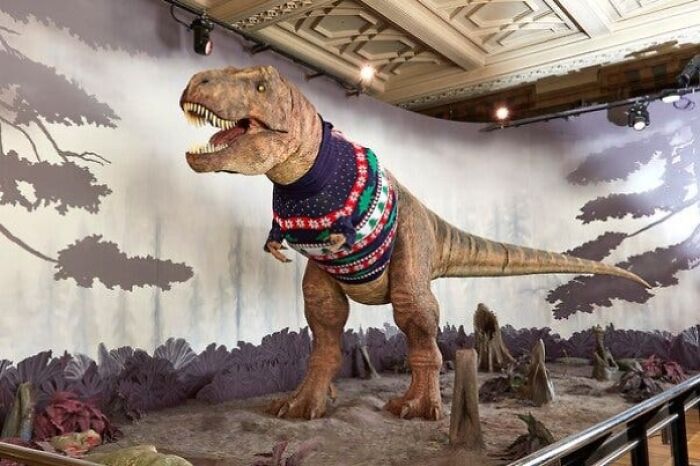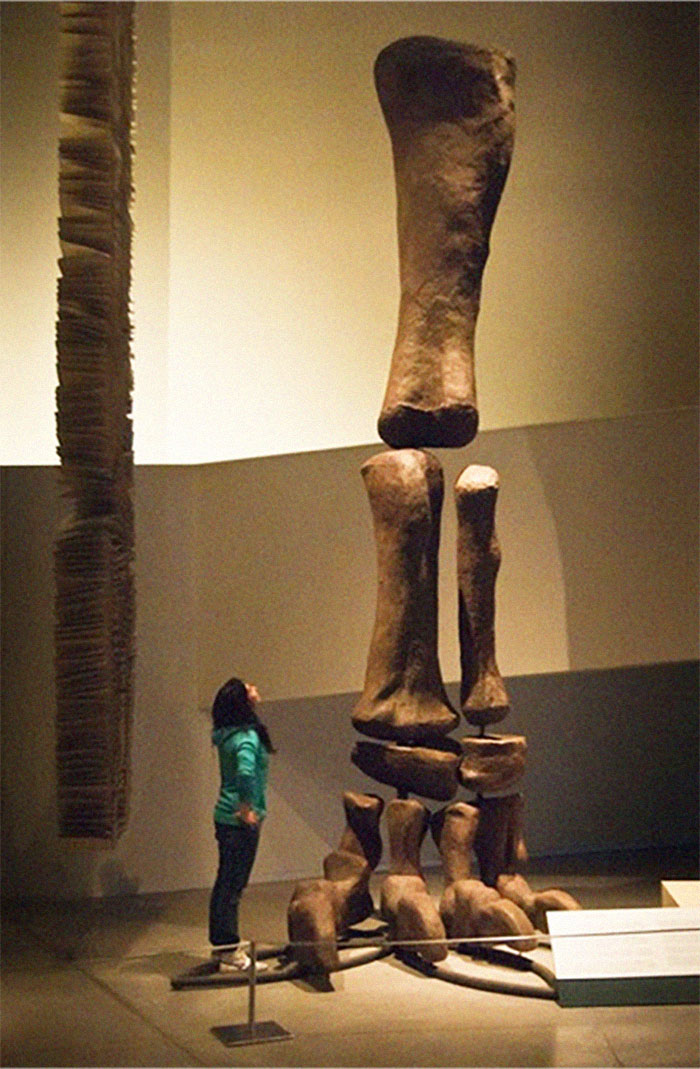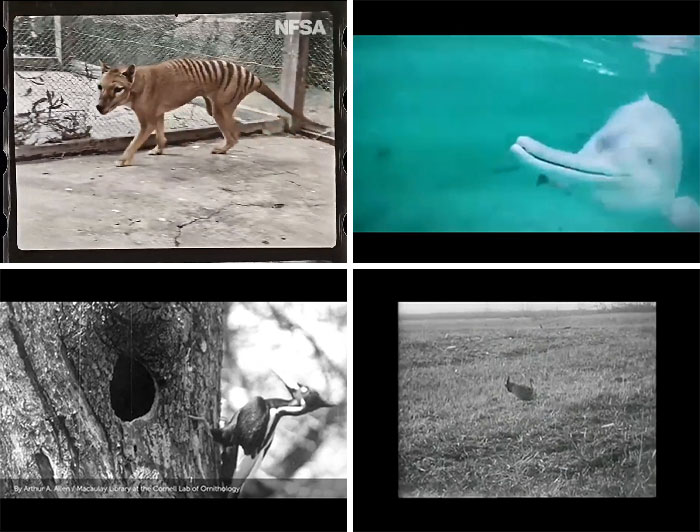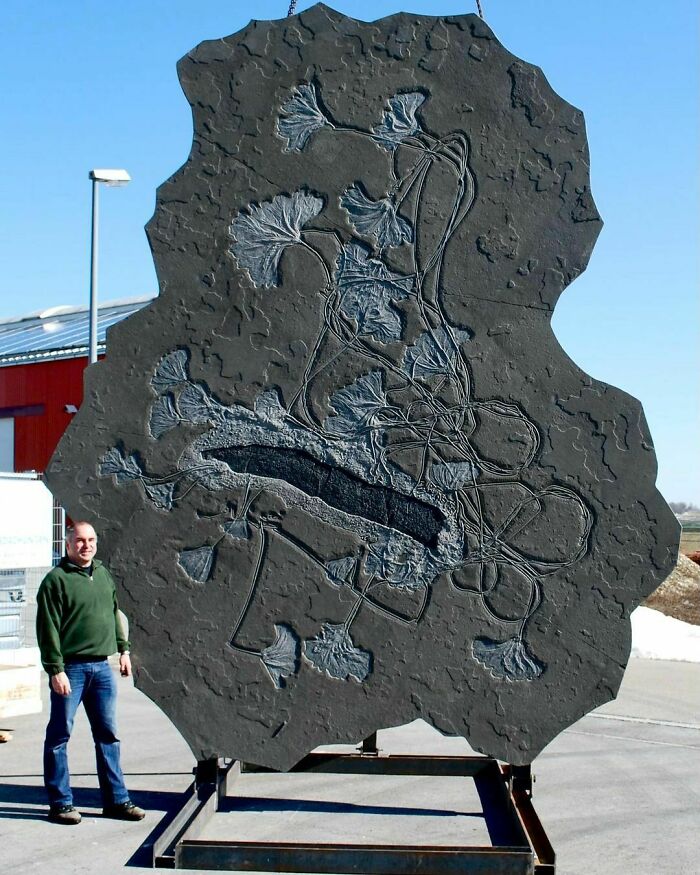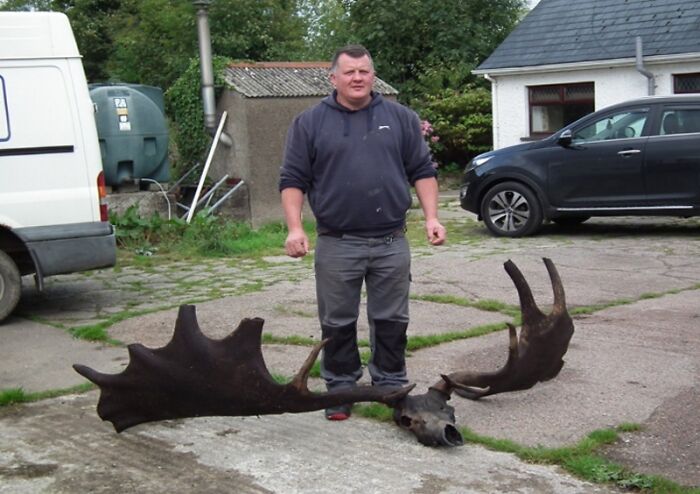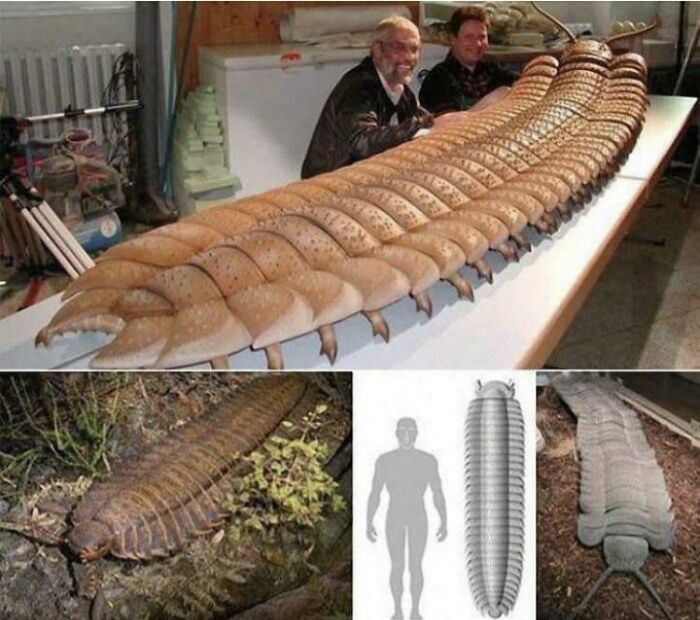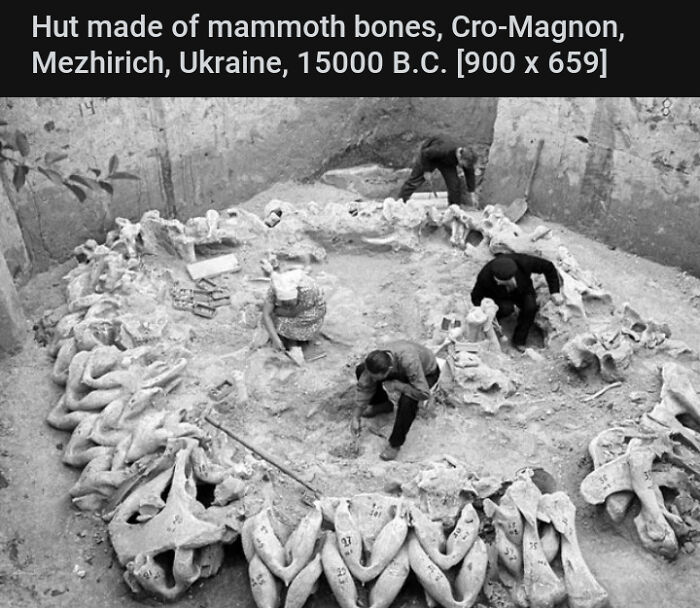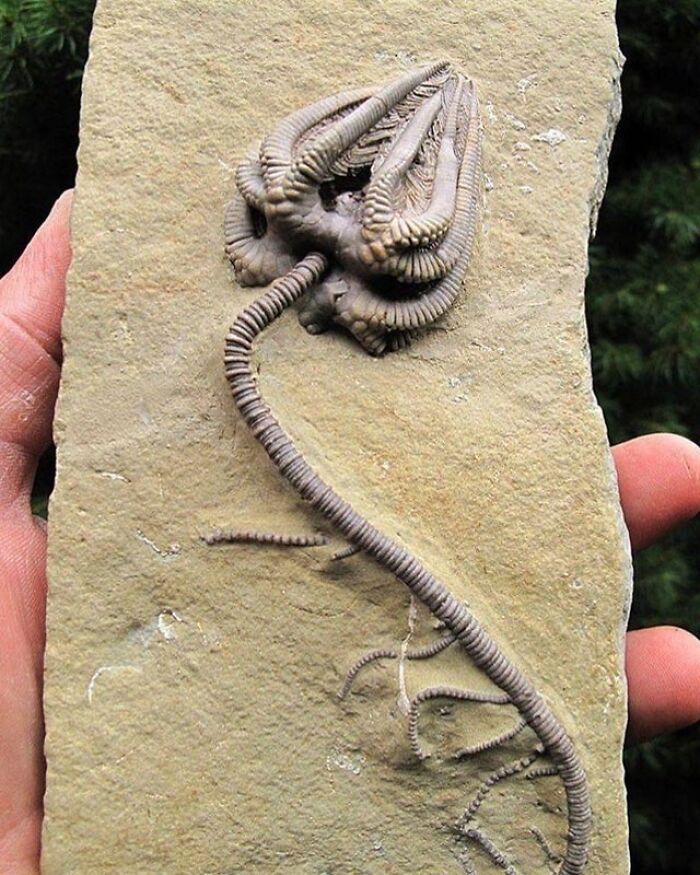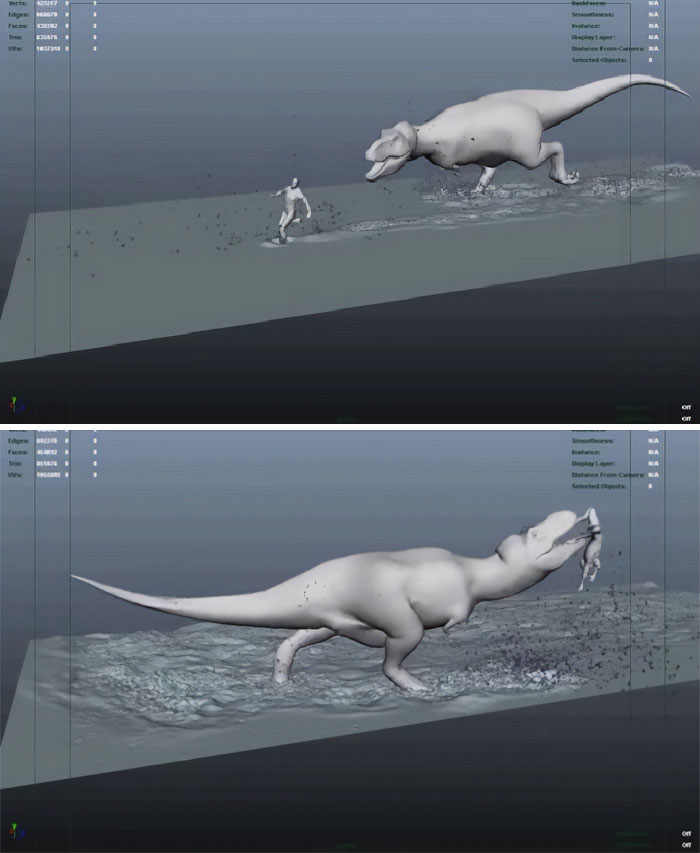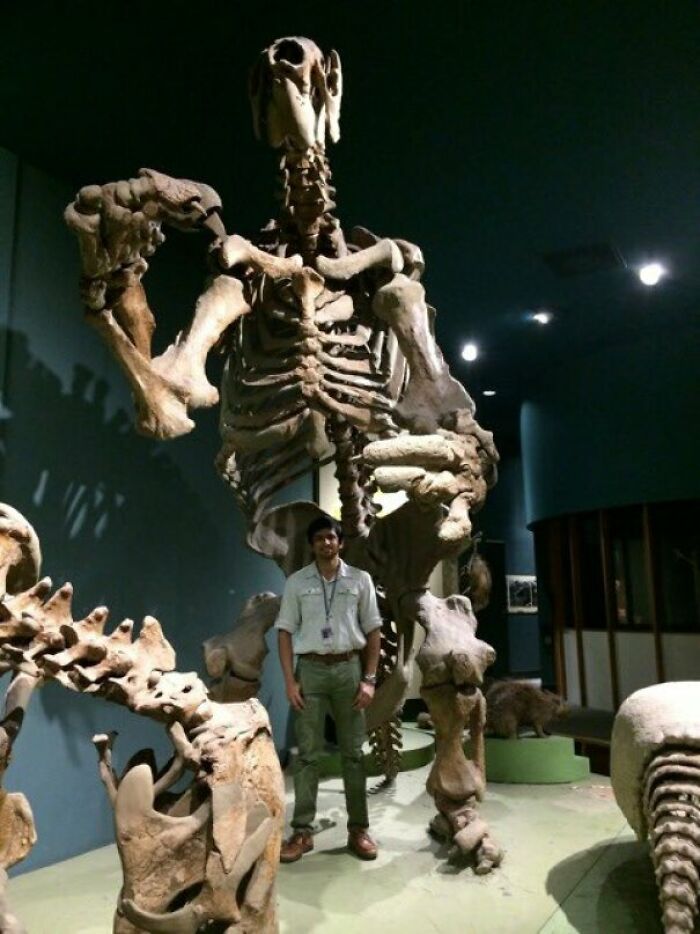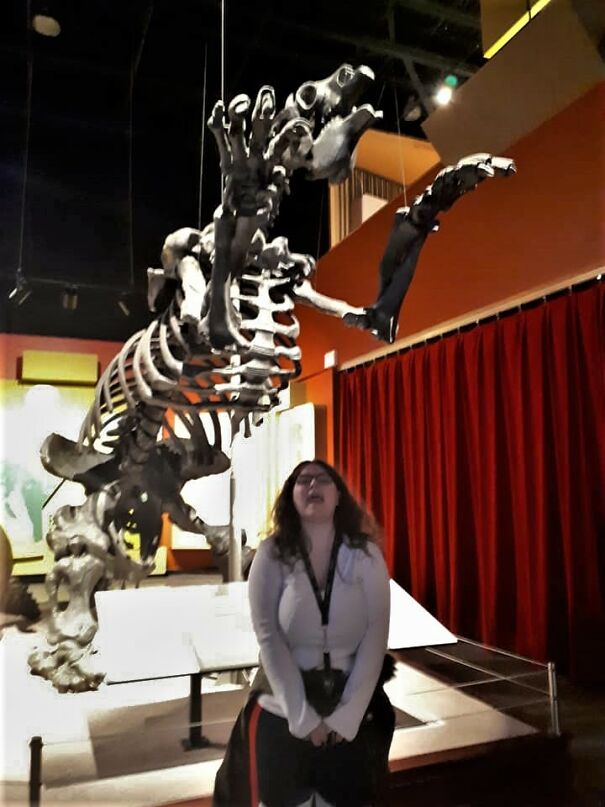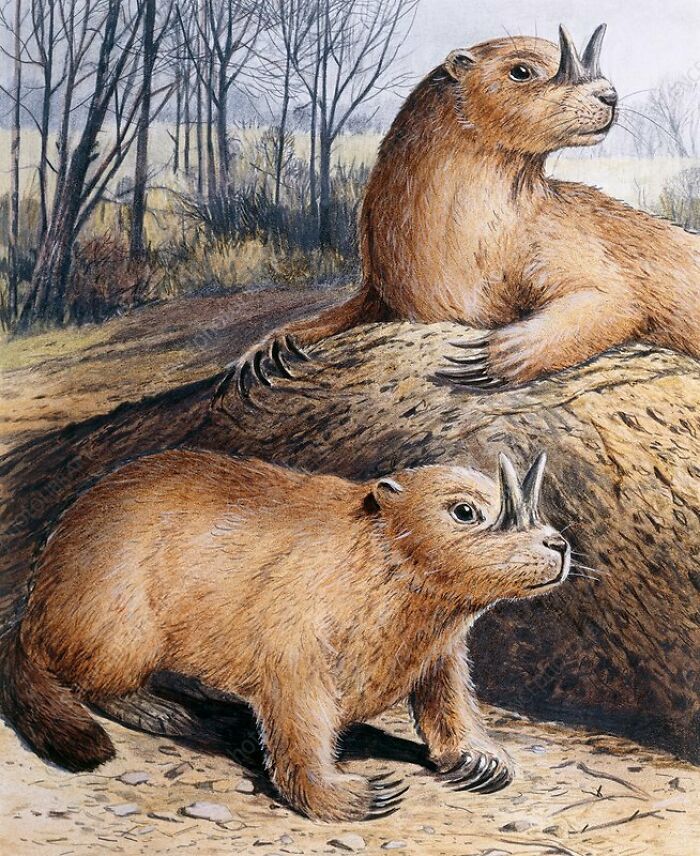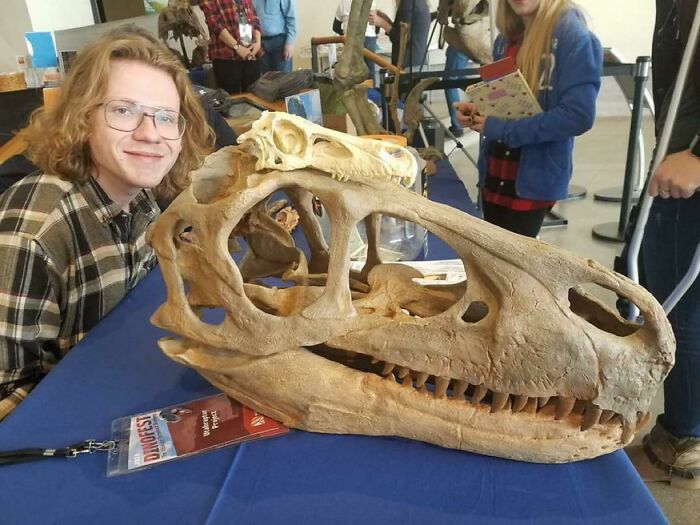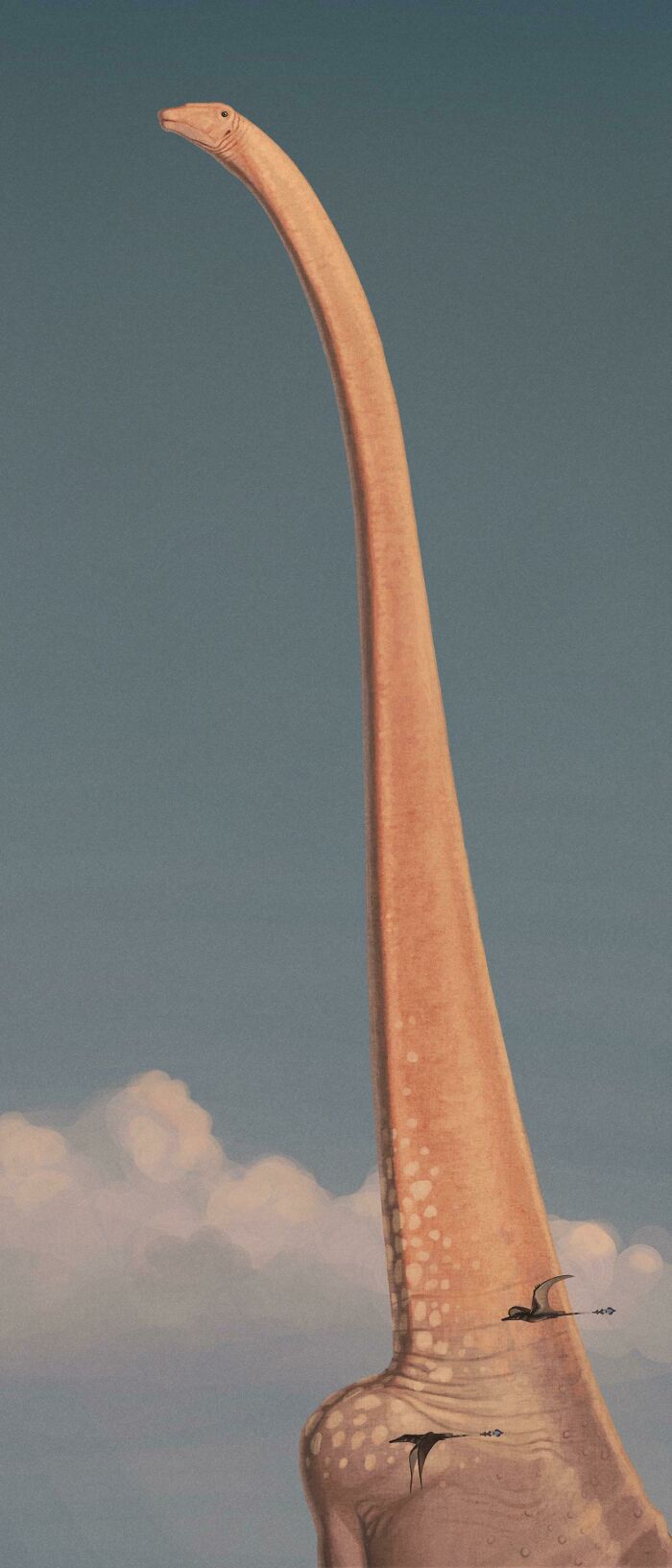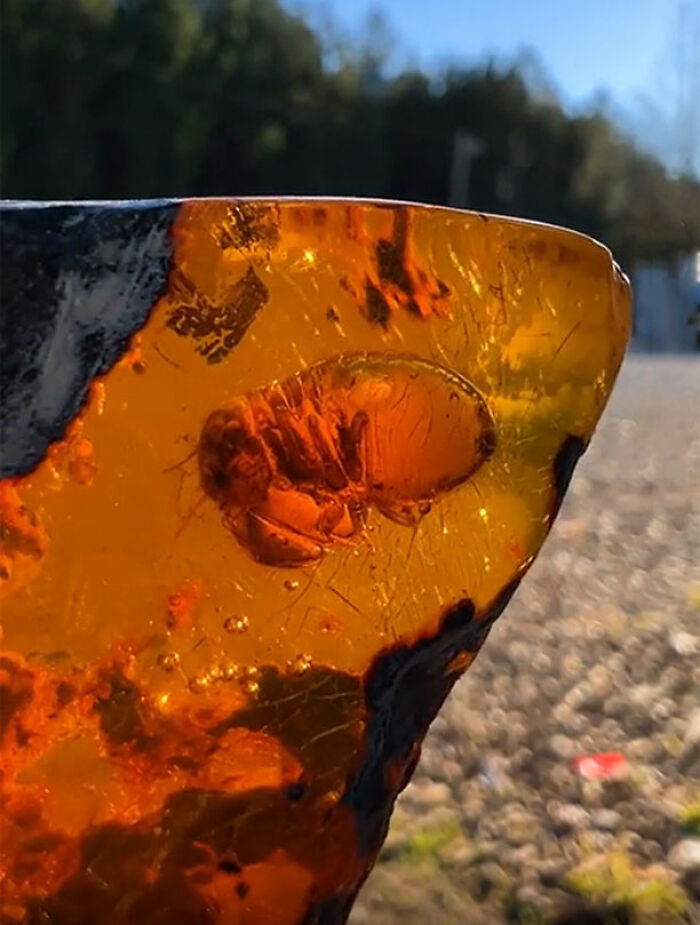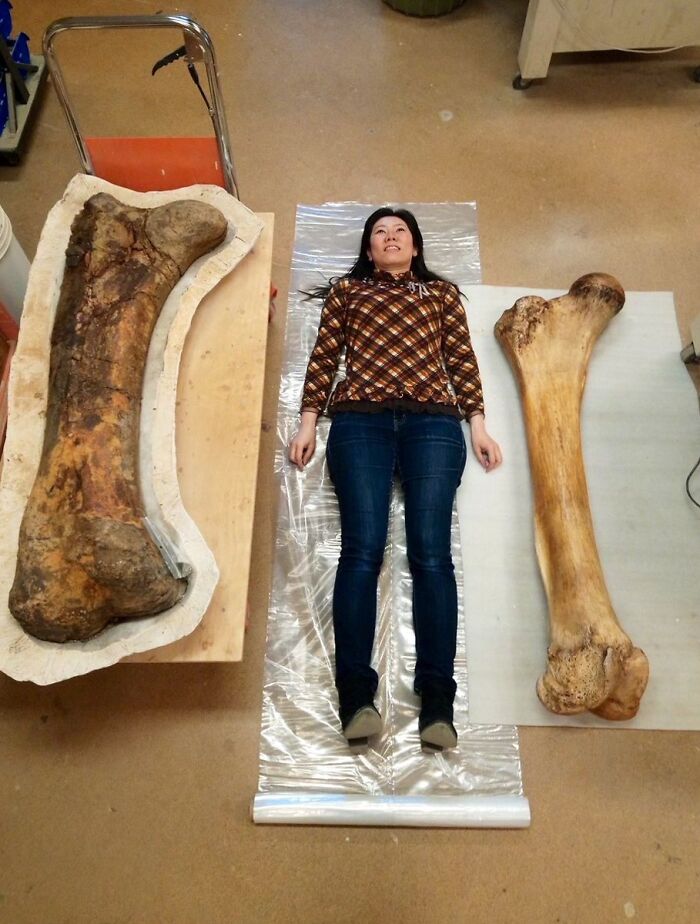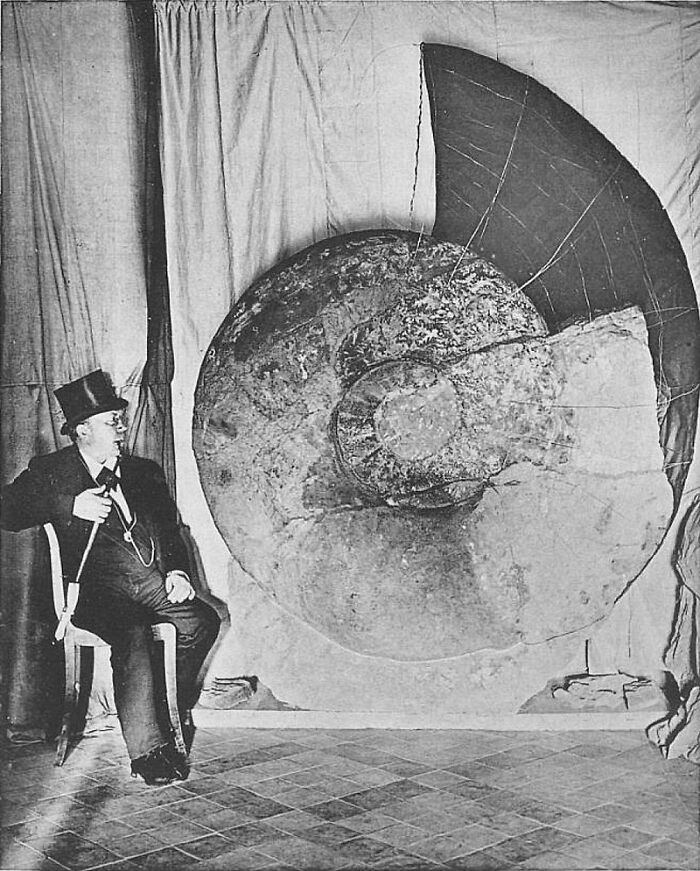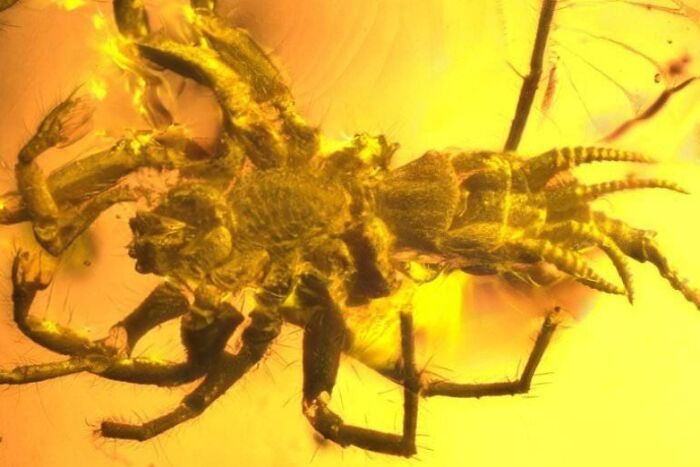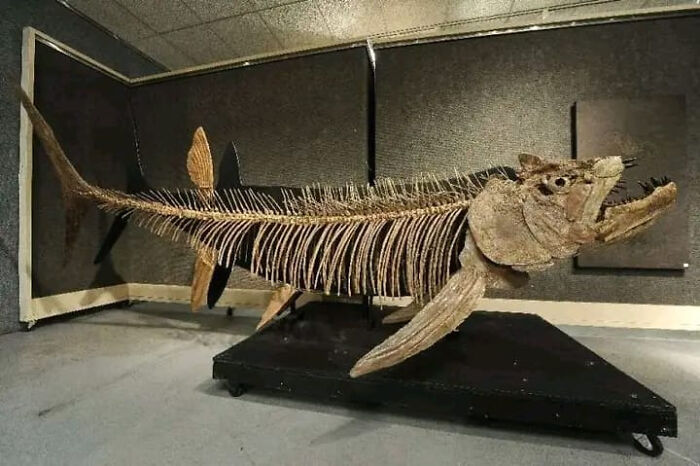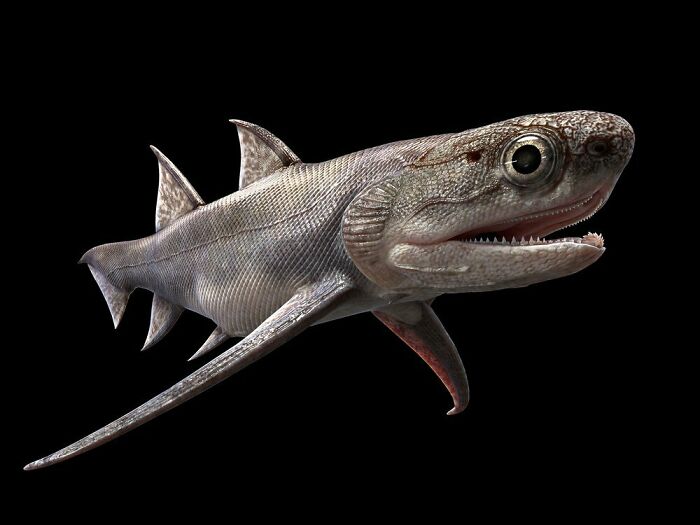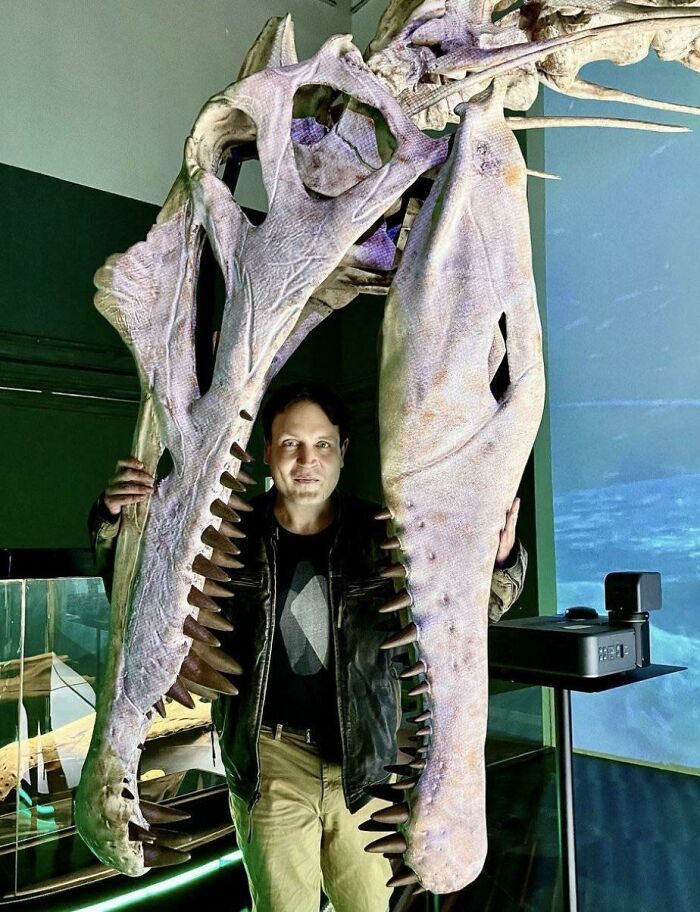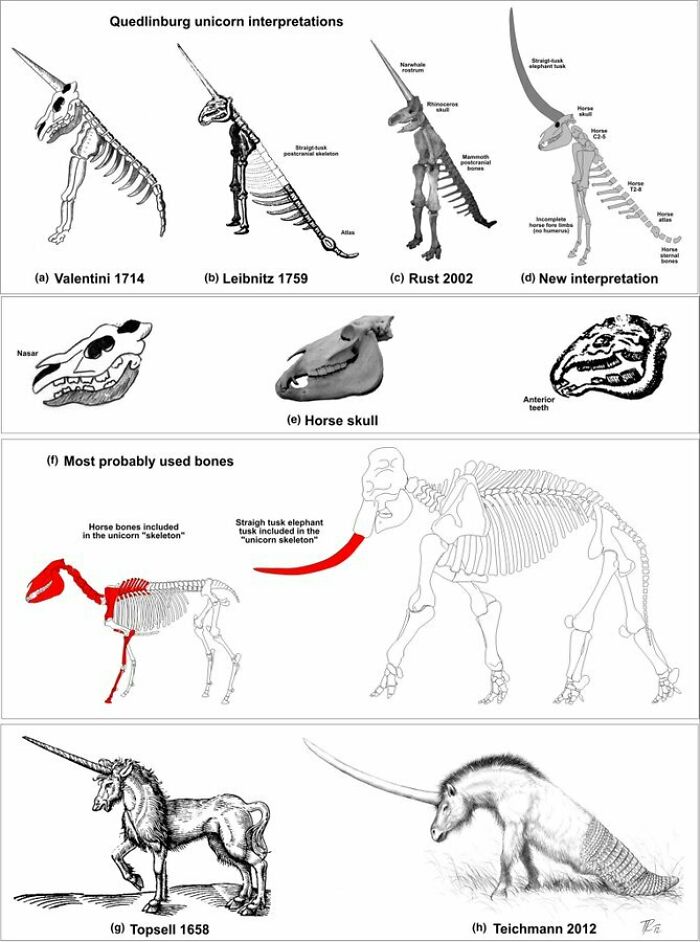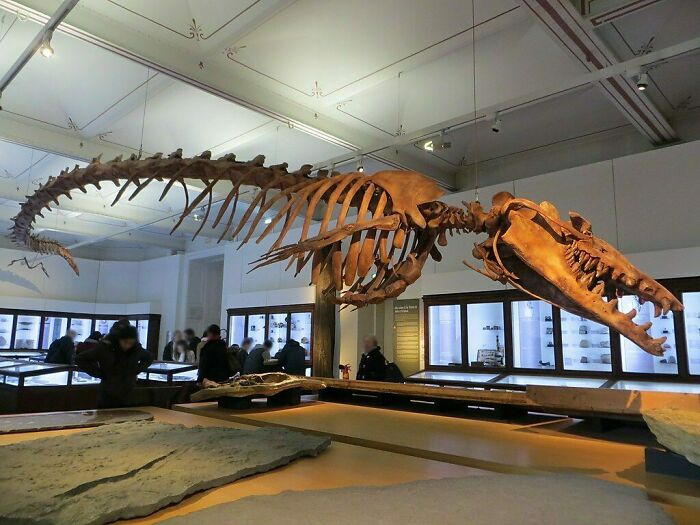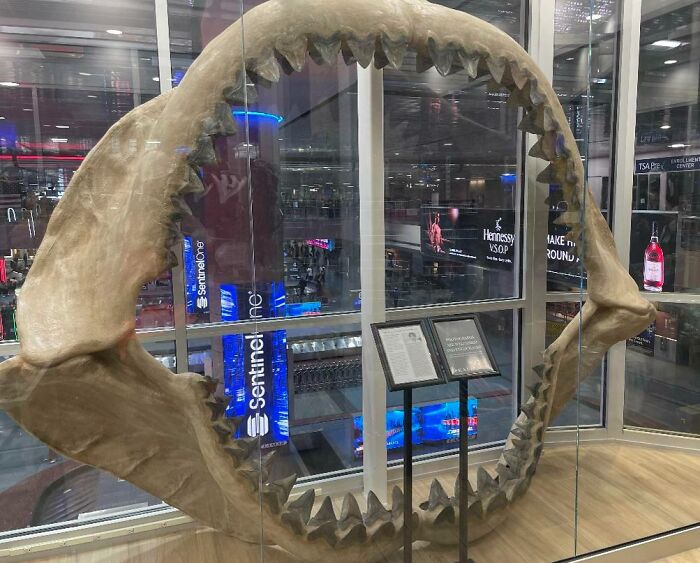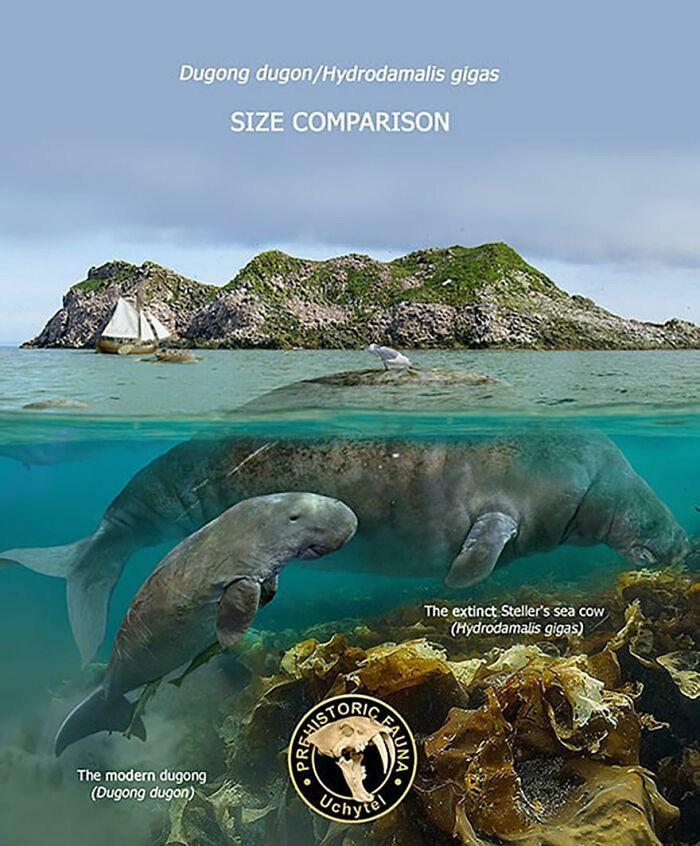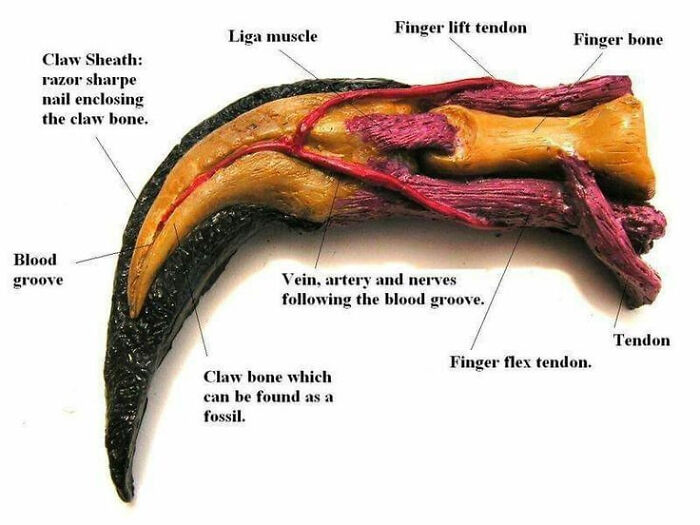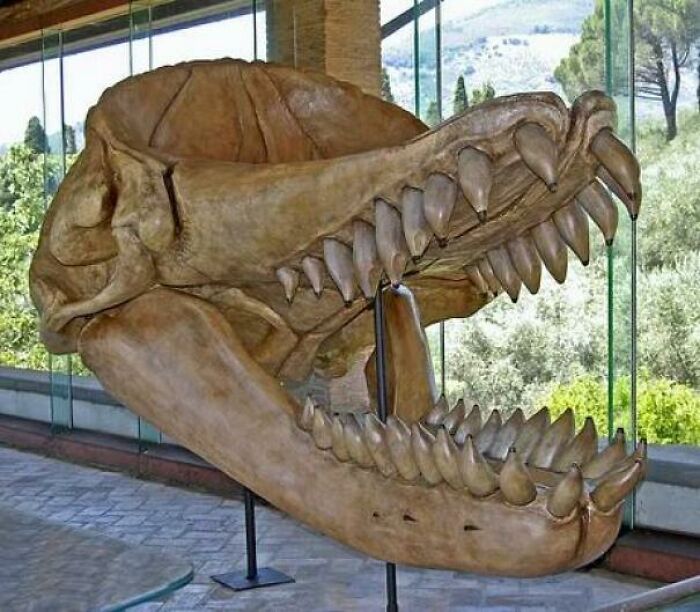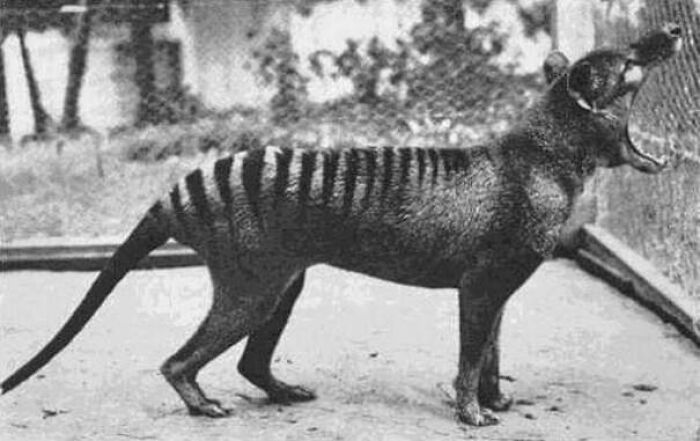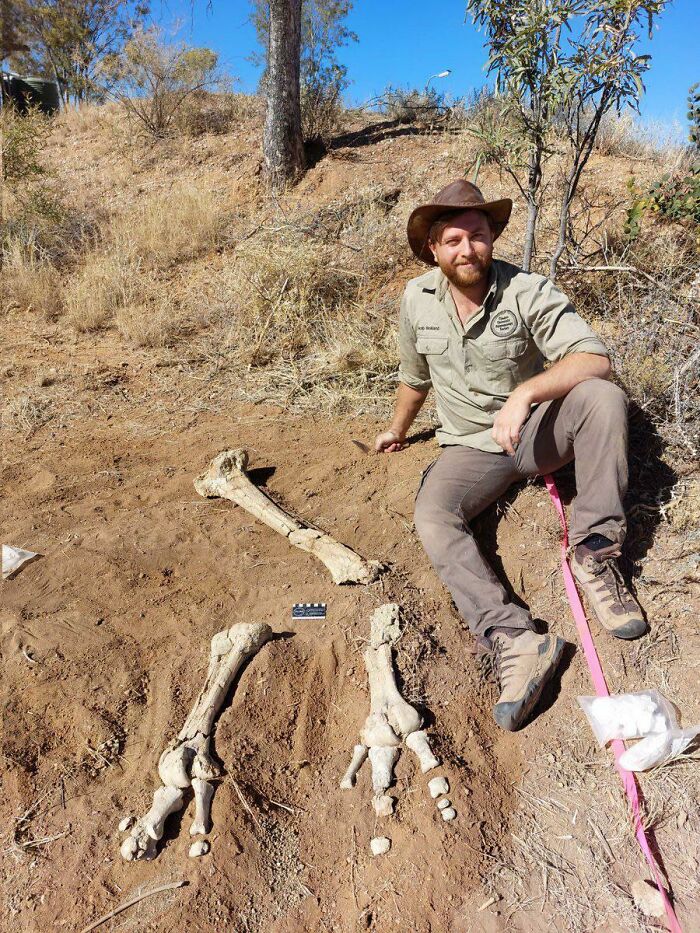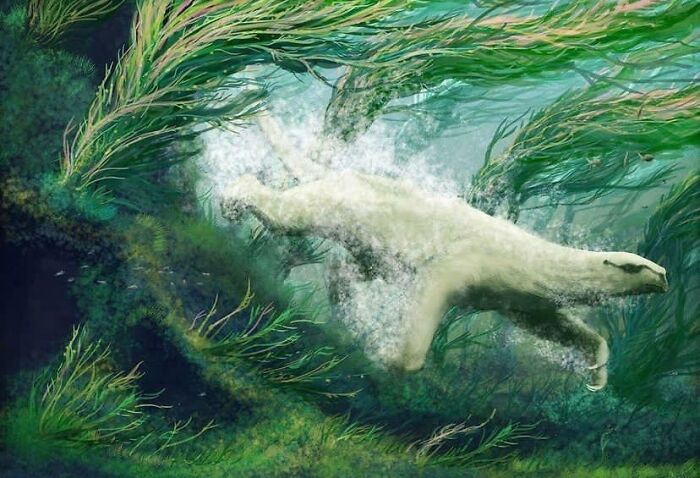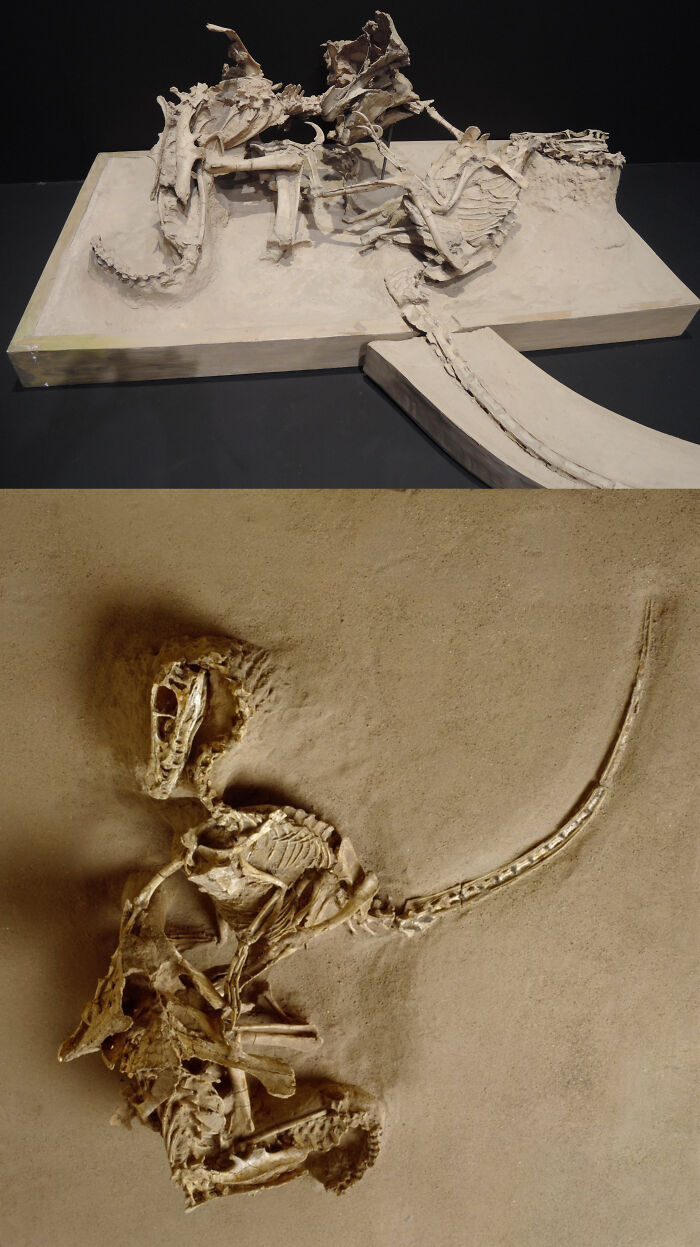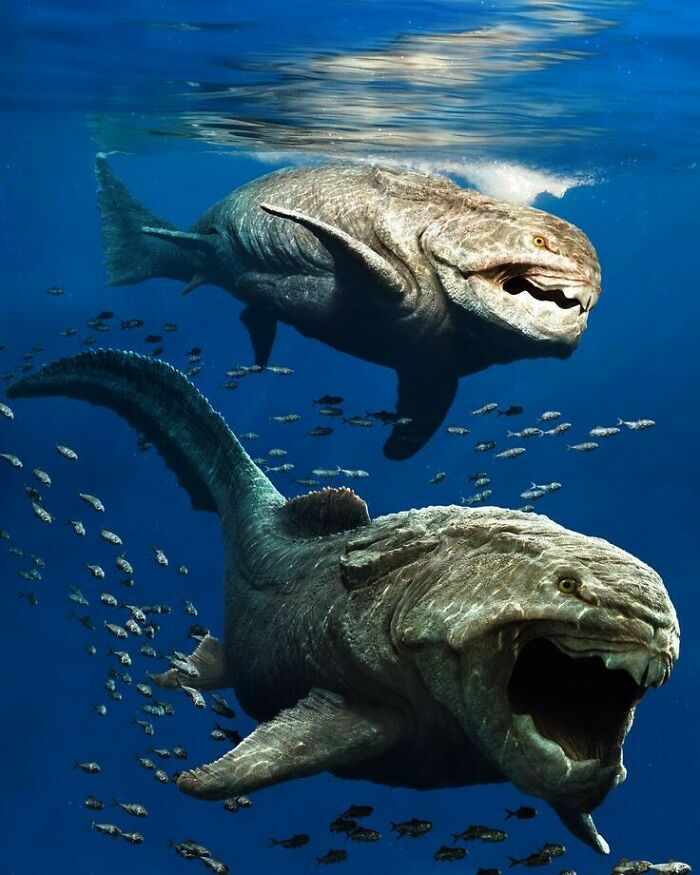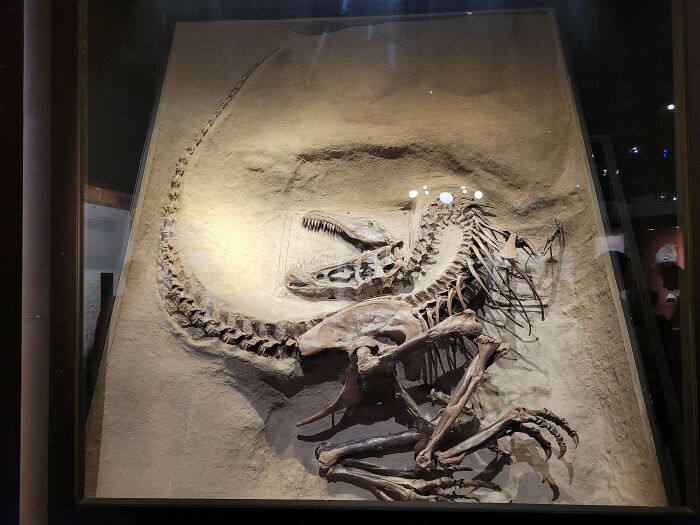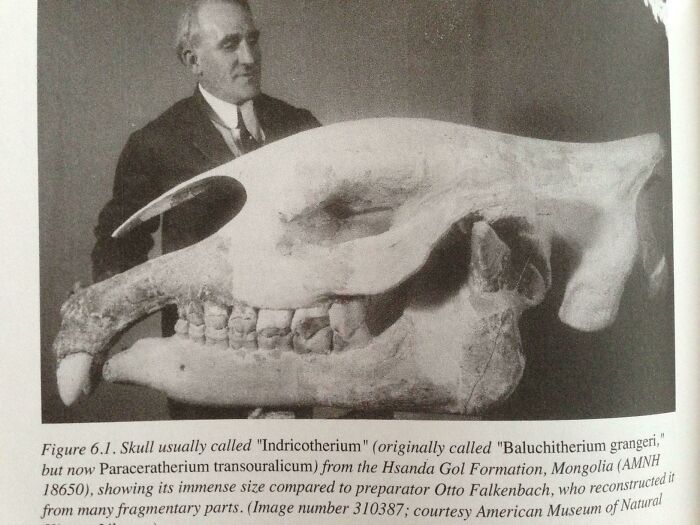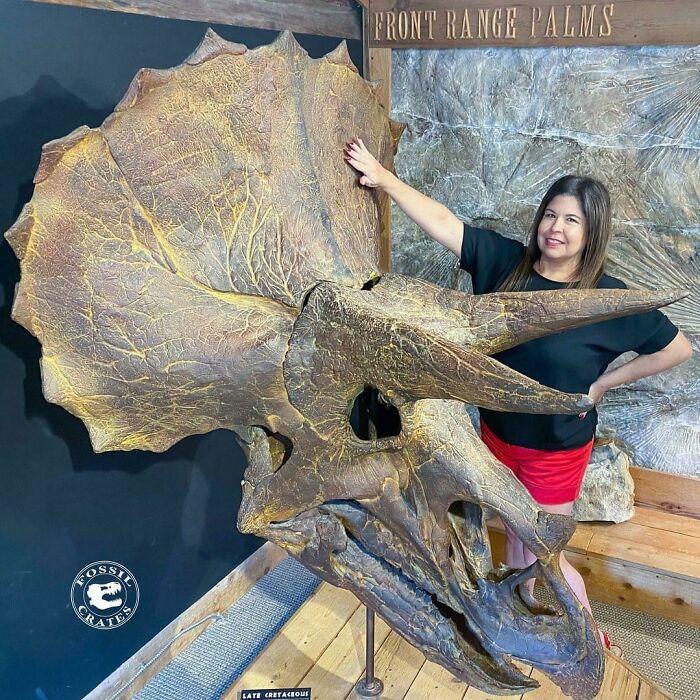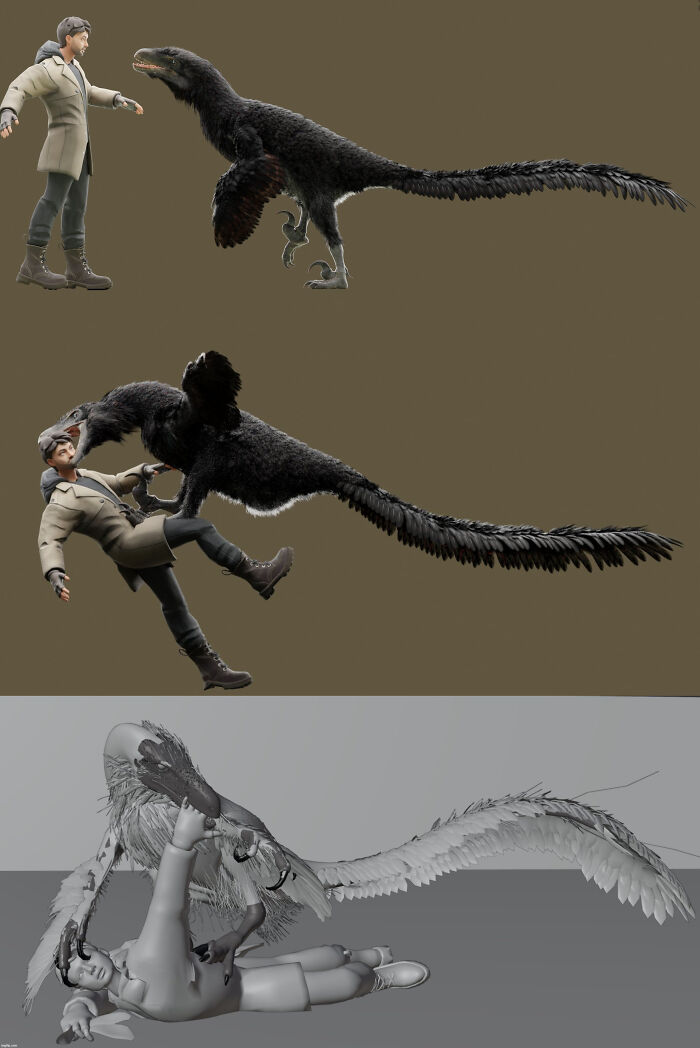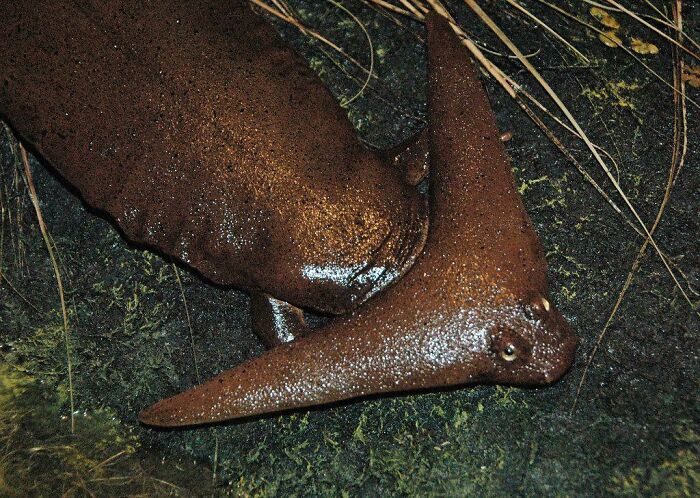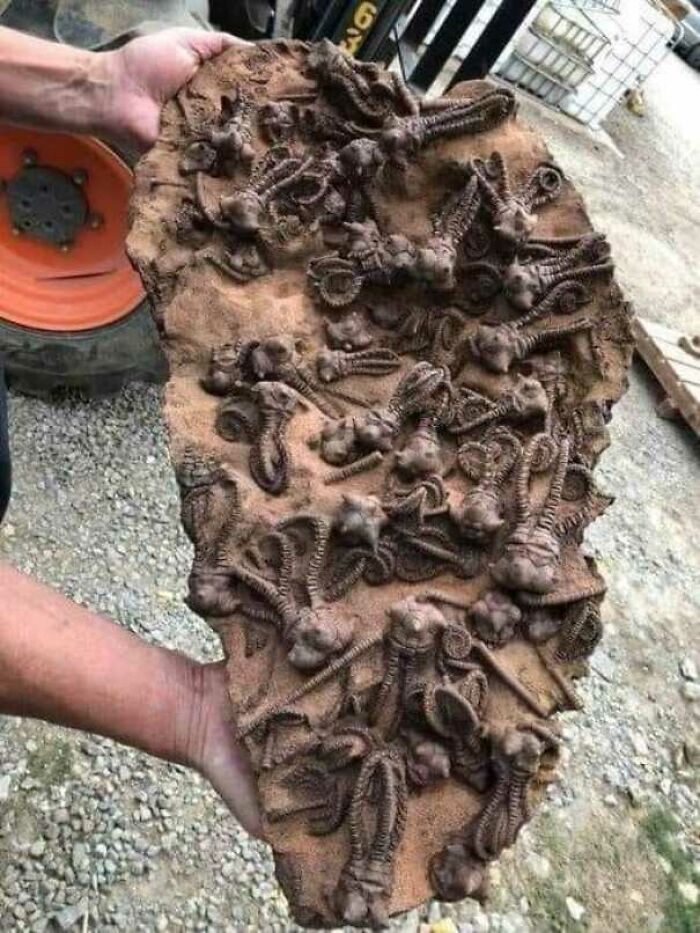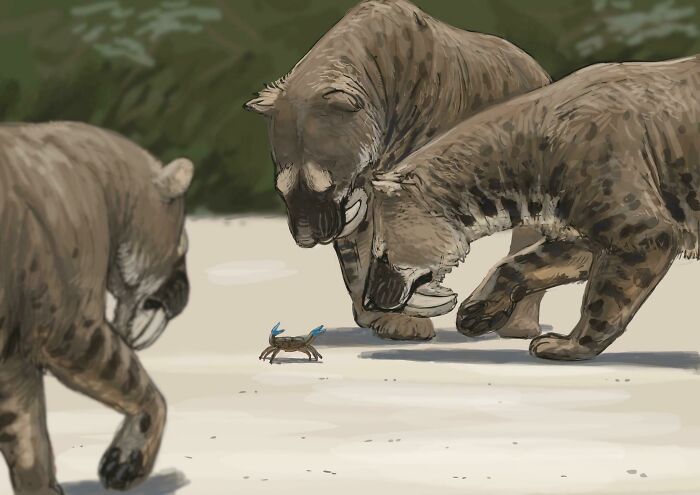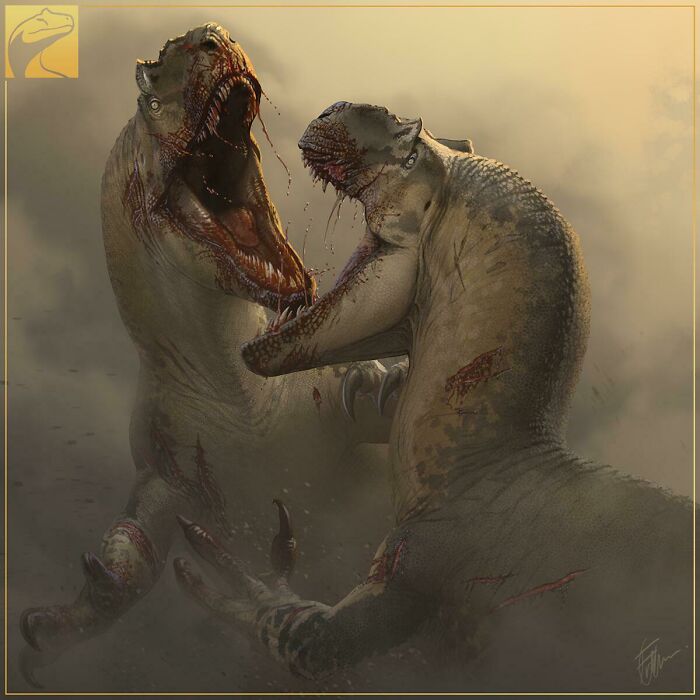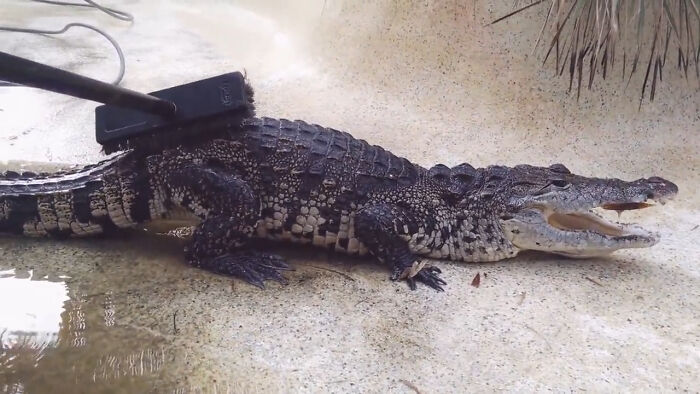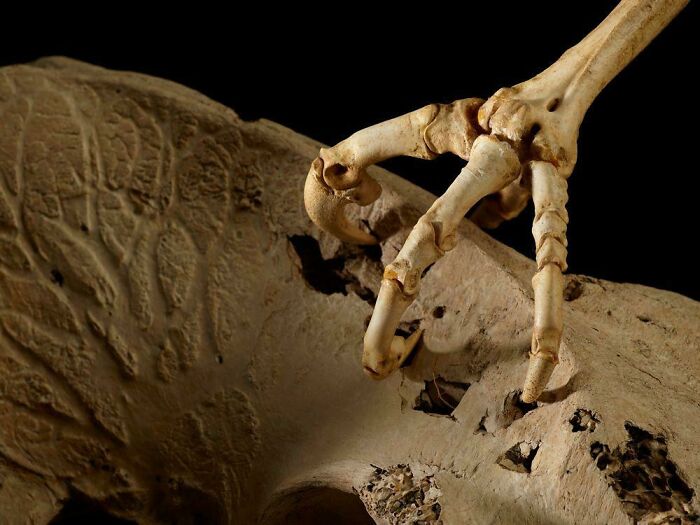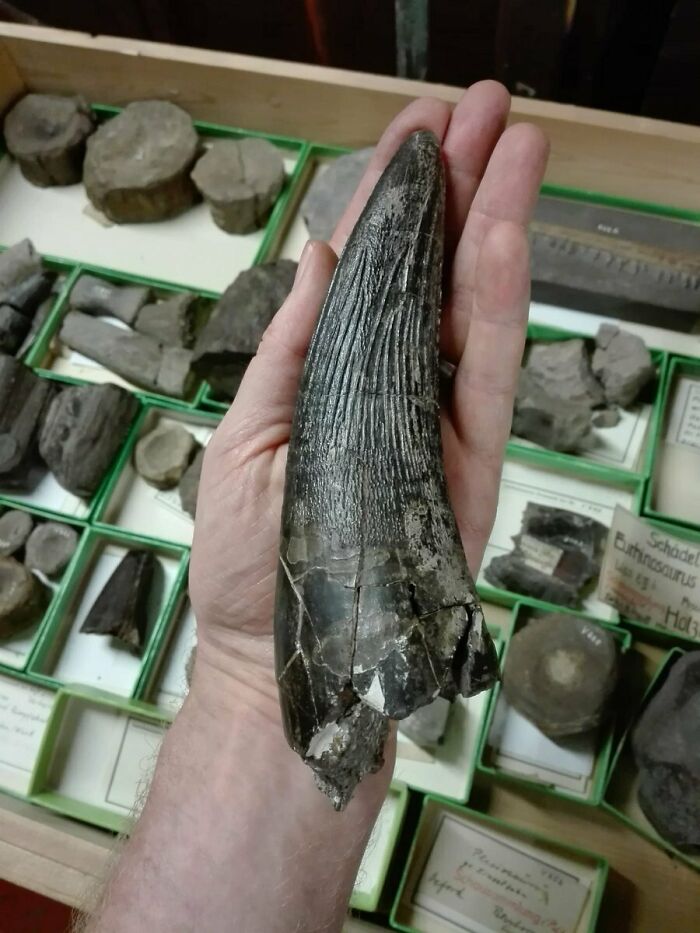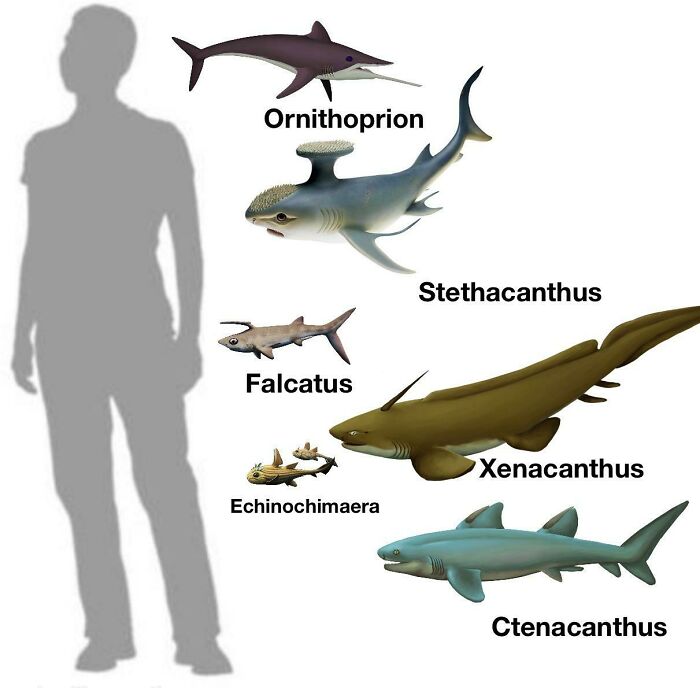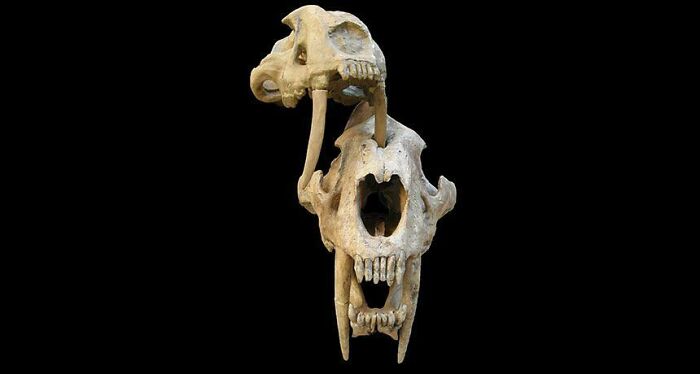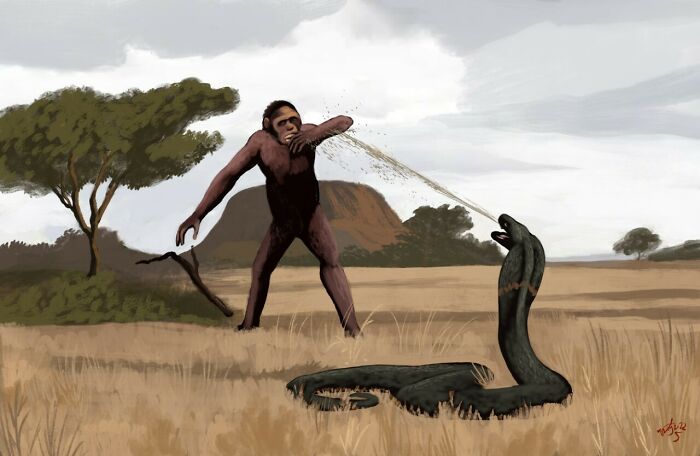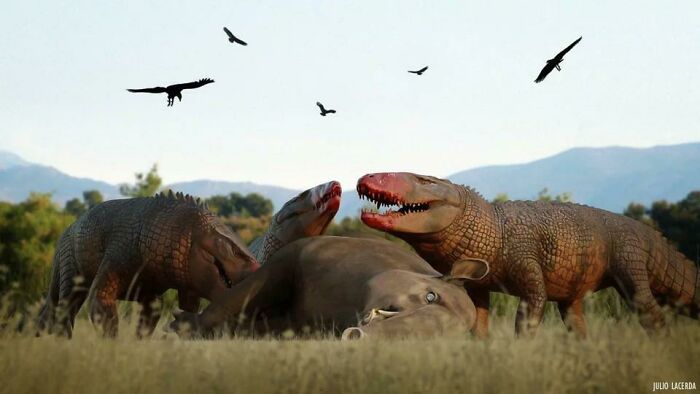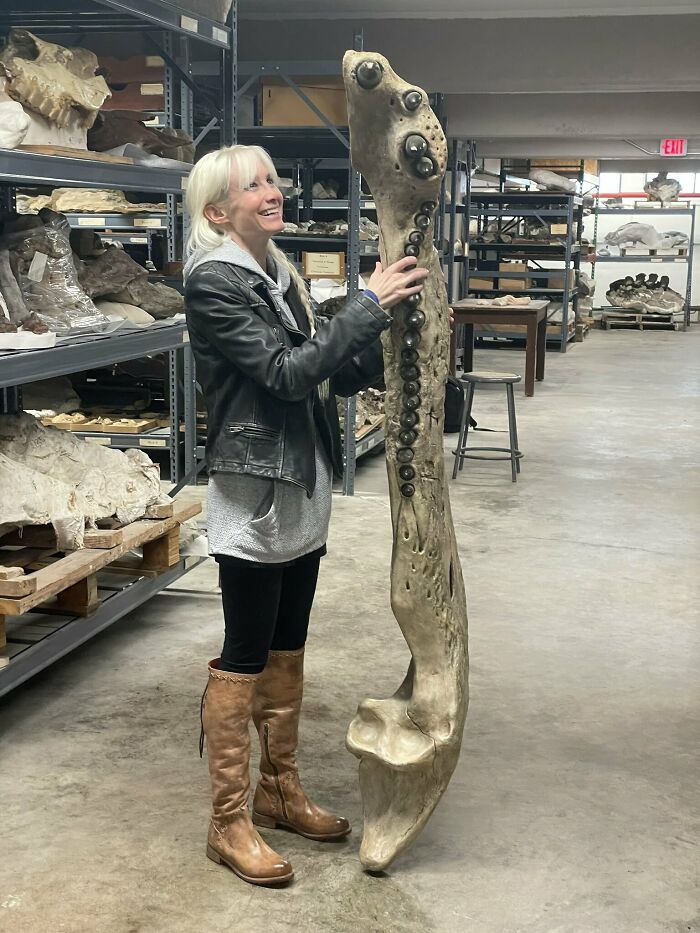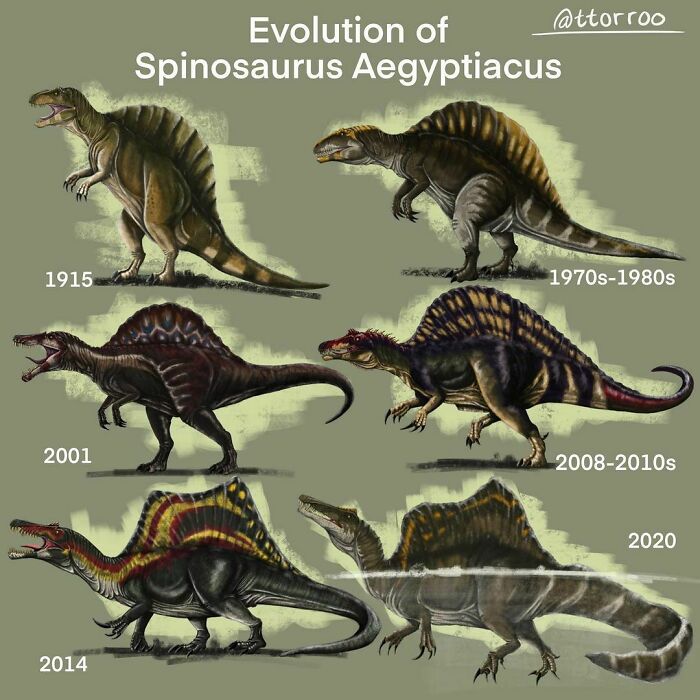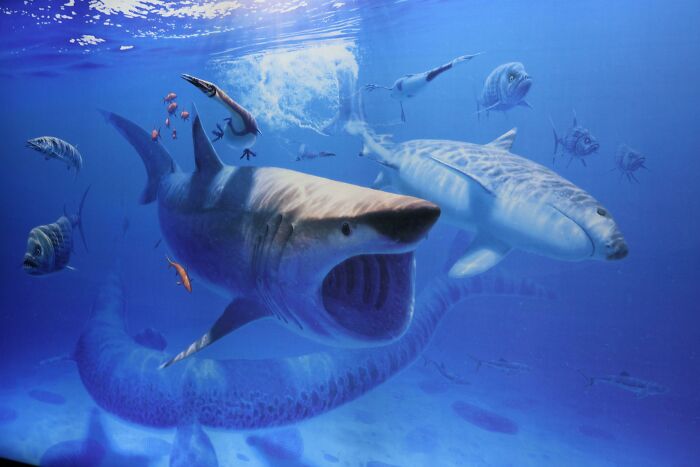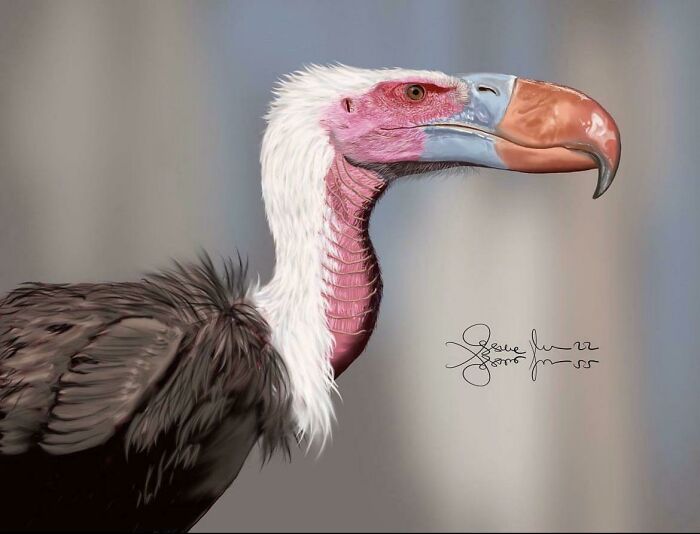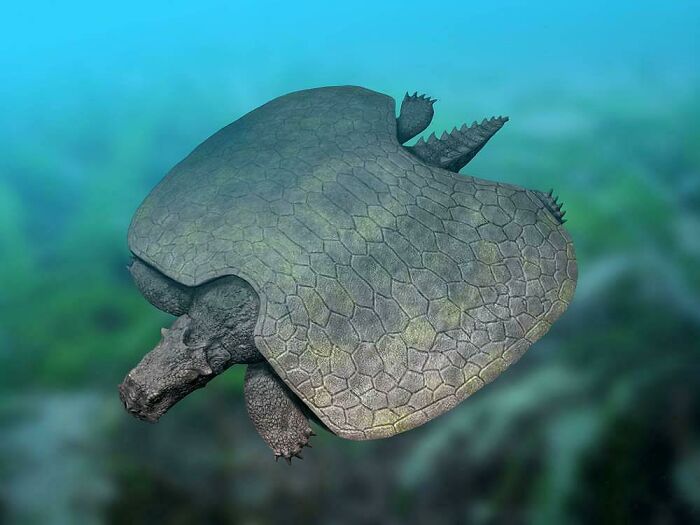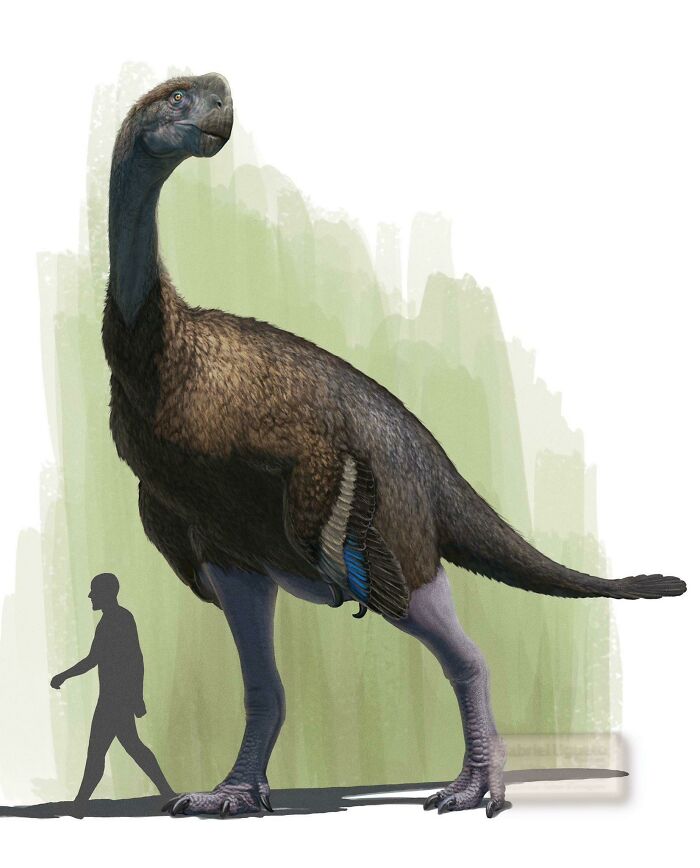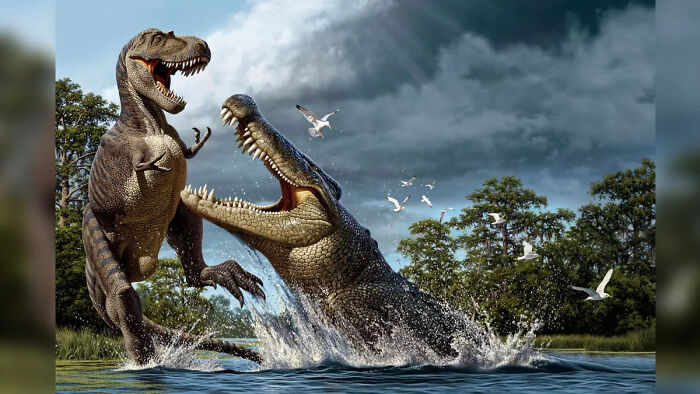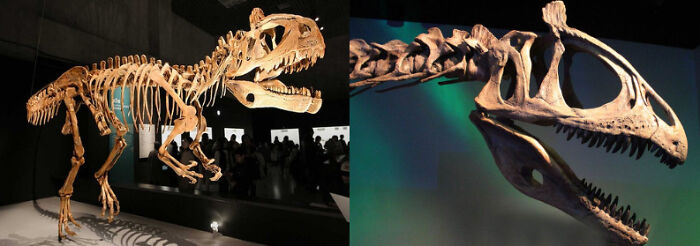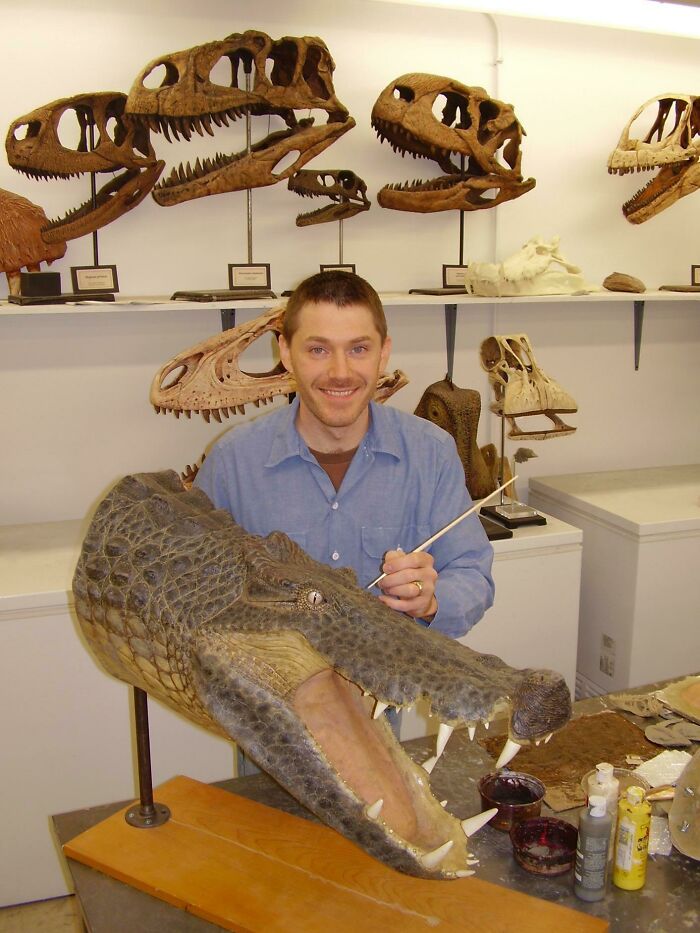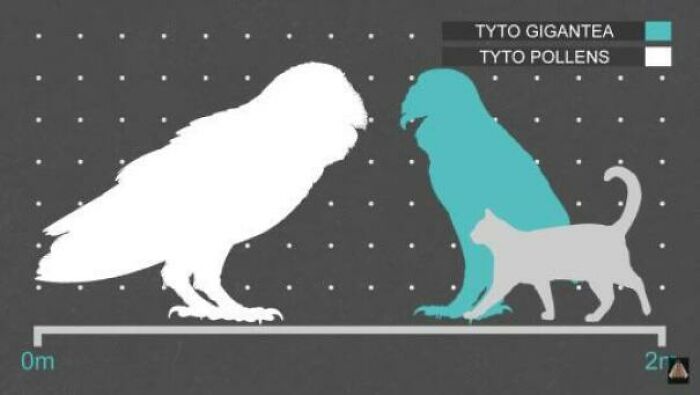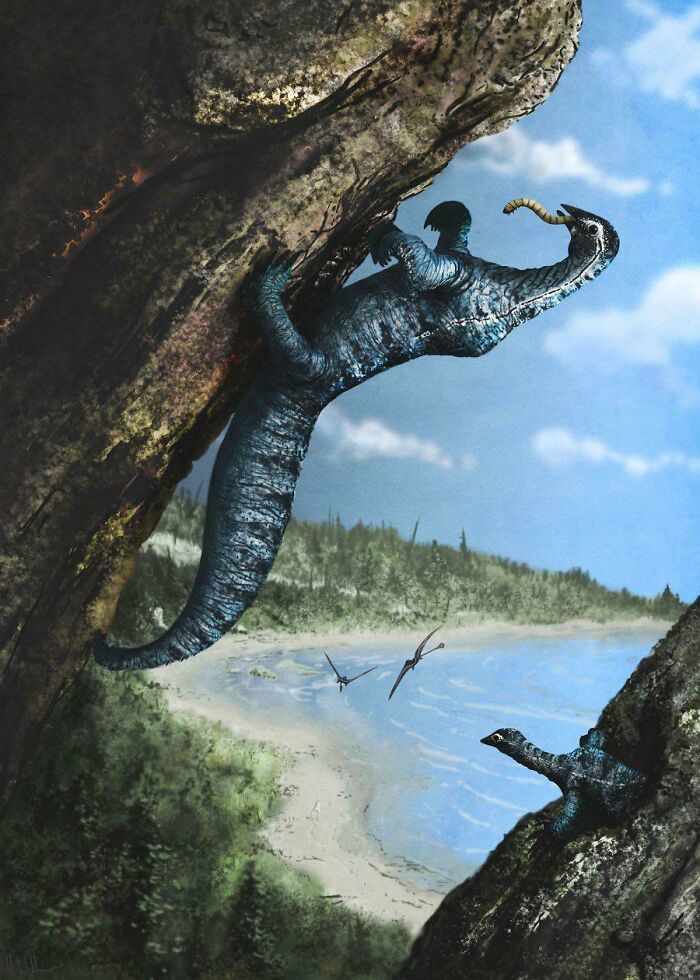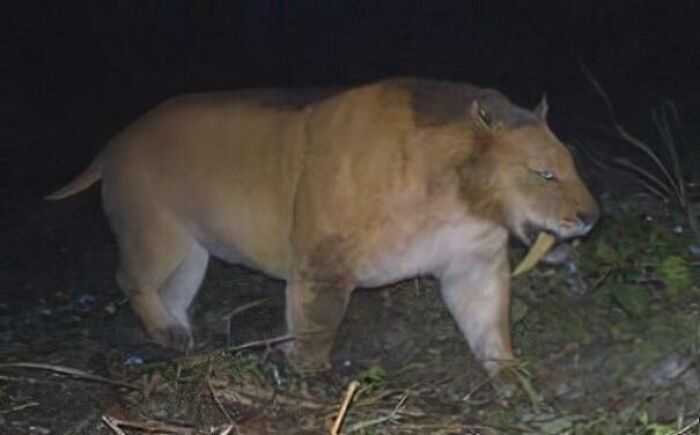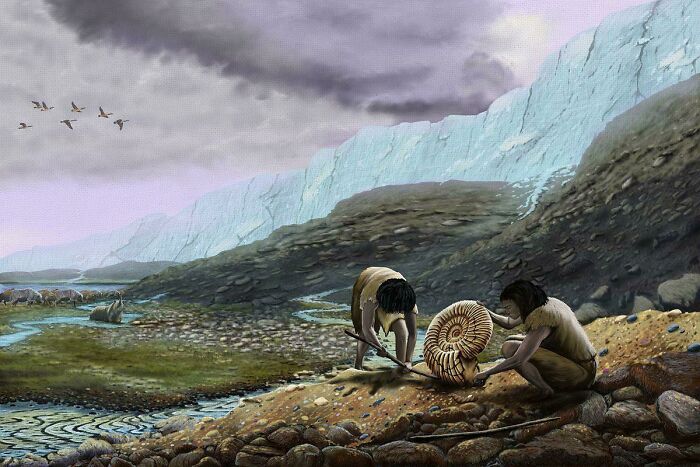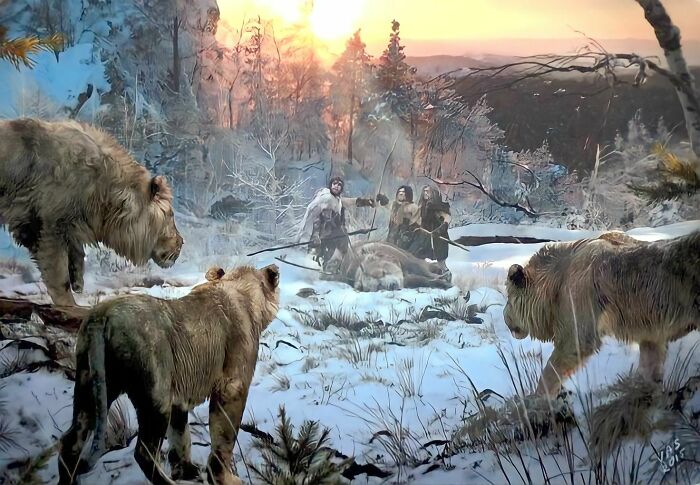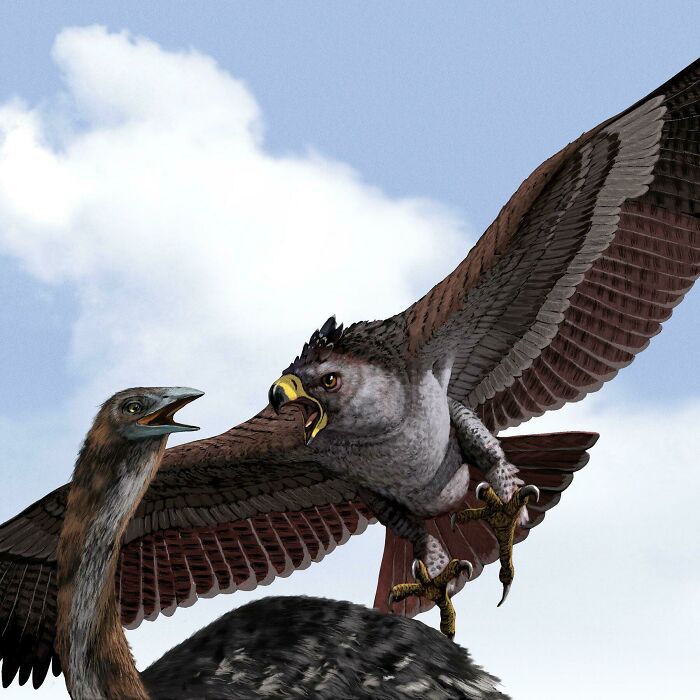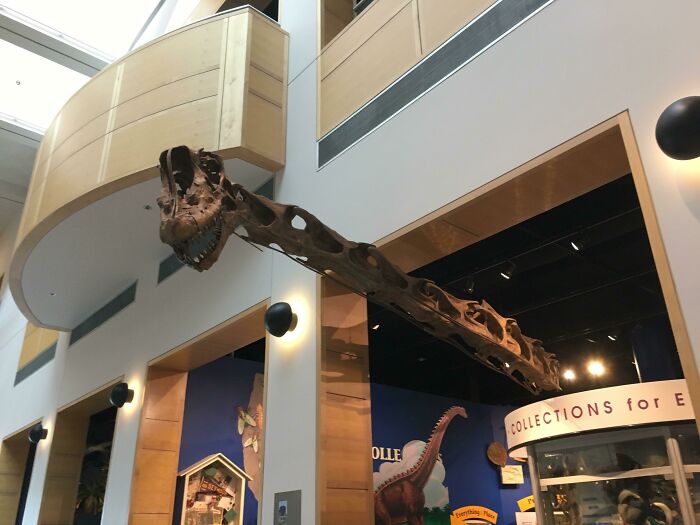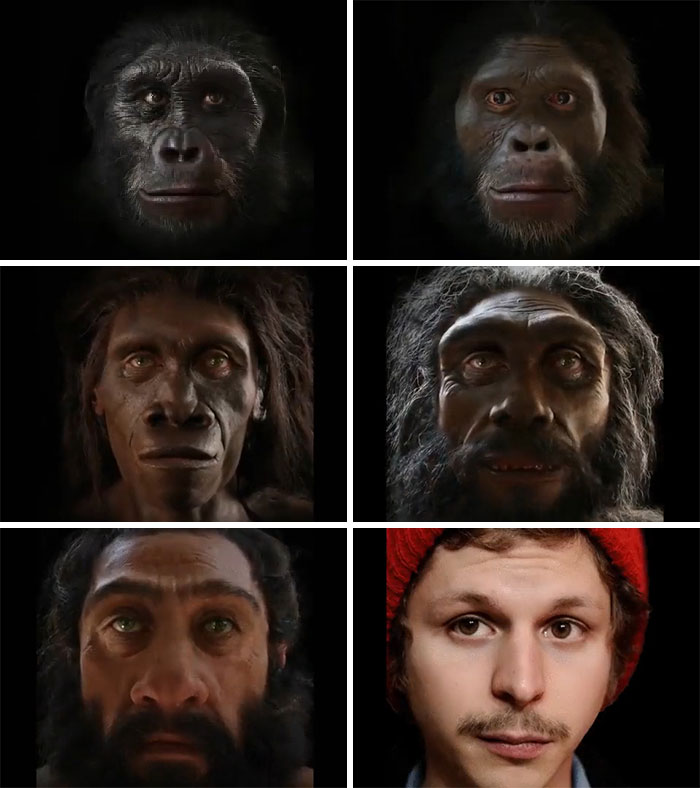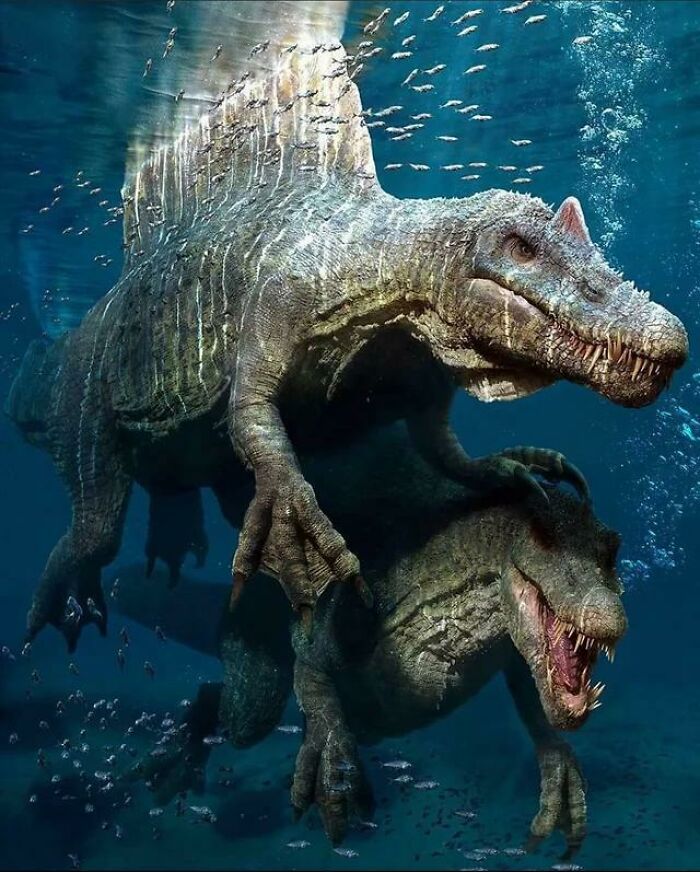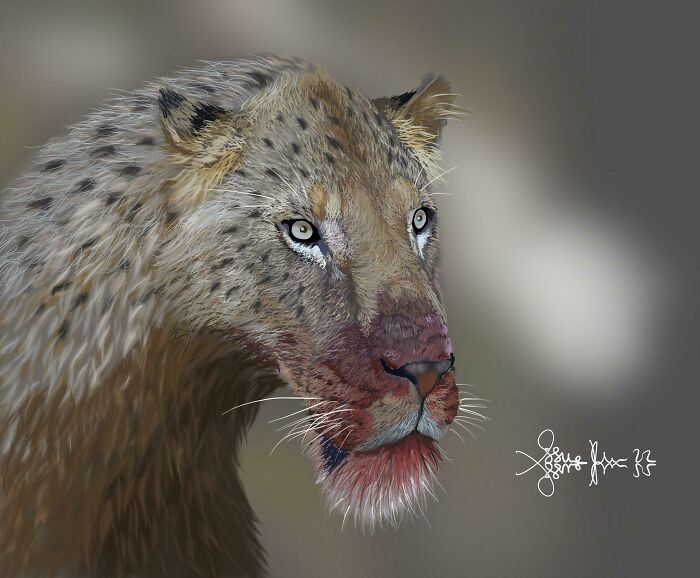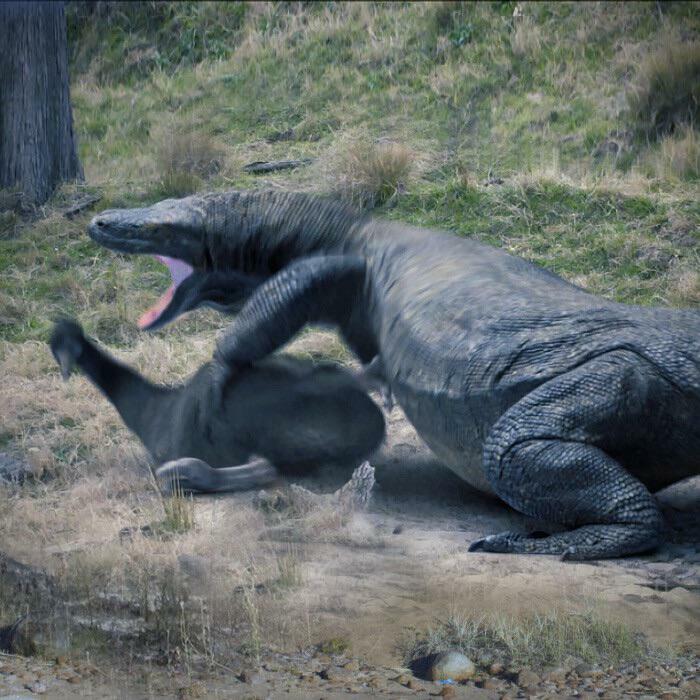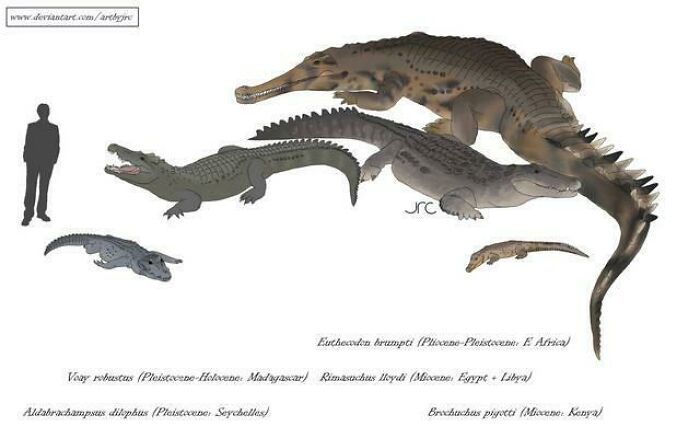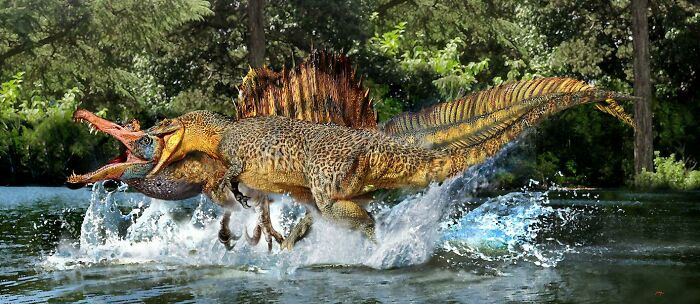Mother nature never ceases to amaze us. It’s a source of life for awe-inspiring creatures, from delicate to humongous, and everything in between. However, some of the latter might seem delicate, too, compared to the living things that have gone extinct.
Bugs the size of a human, reptiles of ginormous proportions, and rodents with horns—these are just a few examples proving that “Nature Was Metal” back in the day. That’s why there’s an entire subreddit, under this exact name, dedicated to some of nature’s most extraordinary creations that have vanished from the face of the earth.
Today we’ve listed a bunch of them for you to get acquainted with. Whether you find them atrocious or absolutely fascinating, they show the name of the subreddit is definitely not baseless. Scroll down to marvel at the beauties and the beasts and click here for our previous post about them.
This post may include affiliate links.
This Is The Best-Preserved Dinosaur Specimen Ever Unearthed. This Mummified Nodosaur’s Bones Remain Covered By Intact Skin And Armor — 110 Million Years After The Creature’s Death
The earliest forms of life—microbes—date back to roughly 3.7 billion years ago. They slowly transformed, presenting more and more complex organisms that eventually led to formation of the first animal species. You might be surprised to learn that sponges, also known as poriferans, are considered to be some of the first animals there are.
Most of the pictures on this list represent something slightly bigger and more threatening than sponges, though. Take dinosaurs, for instance. Scientists believe they lived roughly 245 to 66 million years ago, during the Mesozoic Era, and could weigh tens of tons each.
Tail Of A 99 Myo Dinosaur, The First One Ever Discovered. Perfectly Preserved, Still Covered In Feathers
The Only Preserved Head And Skin Of The Extinct Dodo Bird, Kept At The Oxford University Museum Of Natural History
The American Museum Of Natural History (AMNH) revealed that some dinosaurs weighed up to 80 tons and were roughly 120 feet long. To put things in perspective, try to imagine a dinosaur upright by the Leaning Tower of Pisa, being nearly two-thirds its height.
AMNH also pointed out that not all dinosaurs are extinct, though. Birds, also known as avian dinosaurs, actually share an ancestor with the non-avian ones, which makes them the last surviving group of the kind.
When it comes to non-avian dinosaurs, there are roughly 300 genera and 700 species that have been discovered and named. But these numbers are likely to go even higher, as scientists continue to find new fossils.
Most Animals Used To Be A Lot Bigger
A Barbary Lion, An Extinct Race, As Photographed In Algeria
Thanks to paleontologists, we can get a better understanding of what creatures roaming the Earth millions of years ago looked like. They study the history of life based on fossils—rocks that contain remains of plants, animals, or other forms of life.
It takes 10,000 years for such preserved remains to become fossils. In their hardened layers, they provide scientists with information about the organism’s environment, living conditions, and other details.
This Is Quetzalcoatlus Northropi. It Is The Largest Pterosaur Ever Discovered And Possibly The Largest Flying Animal Ever! It Had A Wingspan Of Around 15.9 Metres (59 Feet)
The Numerous Hand Stencils Of Cueva De Las Manos, Argentina. The Hand Prints Of Many Different People Separated By Hundreds Or Thousands Of Years, Their Stories Lost To Time But Their Art Still Lingers For Us To See
A Man Holding A Nile Crocodile Skull Next To The Skull Of The Fearsome Crocodylus Thorbjarnarsoni. A Giant Crocodile Species From The Early Pleistocene In The Turkana Basin, Kenya
Since the beginning of time, there's always been a solid reason to avoid dark waters.
Some of the first fossils to be recognized as dinosaur remains date back to the 1830s. That’s when, according to the American paleontologist Mark Norell, people in the English countryside found what they believed to be giant extinct reptiles.
When it comes to the first person to study fossils, Georges Cuvier is often referred to as the founding father of paleontology. Back in the 19th century, he was a member of the faculty at the National Museum of Natural Sciences in Paris, which allowed him to access the most extensive collection of fossils available at the time.
The Natural History Museum In London Outfitted Its Animatronic Tyrannosaurus Rex In A Colorful Christmas Sweater
The Giant Monster That Was Argentinosaurus
"Don't cry for me, Argentino. The truth is you were a Saurus. A really big one, but you extinct and we digged your bones out!"
Real Footage Of 4 Extinct Animals: Thylacine, Ivory-Billed Woodpecker, Baiji River Dolphin, And The Heath Hen
The thylacine footage is digitally colourised if I remember correctly. The footage was taken in 1933.
The images of remains on this list are just a tiny fraction of what’s been dug out in the past years. However, they show just how exceptional in size and other features the creatures were.
Some more examples of such fascinating excavations were presented in an article by Geology Science. In addition to the well-known T-rex, it also covered types of feathered dinosaurs and extinct fish, as well as human remains from millions of years ago.
This Giant Crinoid Colony Is 195 Million Years Old From The Lower Jurassic Is 4 X 5 Meter And Is Now On Display At A Museum In Houston!
10,000 Year Old Skull And Antlers Of An Extinct Elk Found By Fishermen In Ireland
Utahraptor Claws
Judging by its name, Utahraptor been found in Utah.. So is there an Ohioraptor??
The Smithsonian Channel also covered the process of restoring an incredible 110-million-year-old fossil. Found in an oil sand mine, it turned out to be the remains of a 18-foot-long nodosaur—a nearly 3000-pound type of armored animal with spikes on its shoulders and a long tail.
Arthropleura Millipede Is The Biggest Bug Known To Ever Live
Mammoth Hut
An Incredibly Intact Crinoid Specimen Fossil Dating Back To About 345 Million Years Ago!
Not all animal remains are encapsulated in fossils, though. Some are often found perfectly preserved in other formations, such as amber, for instance. (Earth Archives have covered some pretty impressive examples of that, which you can find here.)
The colorful tree resin traps certain organisms, which become fully enclosed as it solidifies. Despite usually being smaller in size, pieces of amber conserve the remains of different species, in this way saving the information about them as well.
What Being Attacked By A T-Rex Would Look Like
I know the past was in black and white because colors weren't invented yet, but I didn't think it had such bad graphics.
The Giant Ground Sloth Eremotherium
The Horned Gopher - The Only Known Rodent To Have Developed Horns
Most fossilized remains are of beings that have been long gone for ages, be it dinosaurs or other creatures. However, some species of animals became extinct as recently as just a few years ago.
Some examples include the Spix’s macaw, also known as the blue macaw, featured in the animated movie ‘Rio’, the smooth handfish that used to roam the coastal waters of Tasmania, and splendid poison frog, a red-colored frog formerly found in Western Panama.
The Massive Size Of A Utahraptor Skull, With A Velociraptor Skull And Human Head For Scale
Barosaurus Had Quite A Long Neck. Art By John Conway
22 Million Year Old Enhydro Methane Termite With Its Last Meal Preserved In Amber
Don't no one get no crazy ideas. We've all seen how that works out.
An astonishingly large number of nature’s creations are on the verge of extinction today. According to Animals Around The Globe, nearly 41,500 species are included in the International Union for Conservation of Nature’s Red List, more than 16,000 of which are threatened with extinction.
For example, there are only 67 Javan rhinos in the entire world. The numbers of mountain gorillas and Asian elephants are dropping rapidly, and so are the ones of Atlantic blue tuna.
Triceratops Femur (Left) vs. Elephant Femur
Parapuzosia Seppenradensis, The Largest Known Ammonite, Photographed In The Late 1800s With The Paleontologist Who Described It
Prehistoric Spider-Like Arachnid Found Preserved In Amber
The United States Geological Survey pointed out that some of the reasons for the unfortunate changes in such numbers are habitat loss and over-exploitation of wildlife for commercial purposes. Sadly, human activity has made the process of extinction way more rapid than it would have been naturally. Scientists believe that the 20th-century rate of animal species dying is a hundred times higher than it would have been without people’s interference.
Fossil Of Giant 40+ Million Year Old Fish Found In Argentina
The Origin Of Teeth And Jaws Has Been Pushed Back To 436 Million Years Ago
Nizar Ibrahim Between The Jaws Of Spinosaurus
Well now! That shows exactly what would happen if humans had lived along side dinosaurs. The Creation museum should take a look.. humans would be extinct!
There are, however, ways to help save the animals at risk. The Endangered Species Coalition pointed out some easy steps to do it, such as learning about the endangered species in your area or making your surroundings wildlife-friendly. It also emphasized the importance of recycling, cautious driving, and safe use of chemicals in your environment.
In 1663, The Partial Fossilised Skeleton Of A Woolly Rhinoceros Was Discovered In Germany. This Is The “Magdeburg Unicorn”, One Of The Worst Fossil Reconstructions In Human History
Basilosaurus, A Large, Toothed Whale Whose Serpentine Appearance Caused Scientists To Initially Believe It Was A Marine Reptile
Whoever discovered this was either called Basil or a fan of Fawlty Towers.
Til That Las Vegas, Nv Airport Has A Megalodon Fossil With All Original Teeth Found By One Person Who Dives For Them. I Was Walking Through The Airport And Saw The Massive Jaws
Steller’s Sea Cow, An Enormous Creature Brought To Extinction By Humans, Compared To The Extant Dugong (Which Is About The Weight Of A Bison)
Dinosaur Claws Were Actually Much Bigger When They Were Alive
The Levyatan Was A Whale, An Apex Predator, And A Competitor Of The Megalodon. The Skull Is 3 Meters, The Largest Teeth Are 36 Cm Each - These Are The Largest Among Animals
The Last Known Tasmanian Tiger Photographed In 1933. They Are Now Extinct
I lived in Tasmania for over a decade, and I knew someone who'd strongly disagree with them being extinct. They told me that they saw one and this person is not someone who lies.
Dromornis Leg Fossils Upon Excavation
Thalassocnus Natans, An Aquatic Sloth From The Late Miocene Of Peru And Chile. Art By Mark Witton
The Legendary "Fighting Dinosaurs" Fossil, Of Which A Velociraptor And Protoceratops Were Both Preserved In Mortal Combat
Dunkleosteus
Gorgosaurus Taken At The Royal Tyrrell Museum
Enormous Paraceratherium Skull
Triceratops Horridus Skull At The Morrison Natural History Museum, Co
"Many People Believe The Velociraptors In The Jurassic Franchise Were Utahraptors, They're Not. They're Actually Deinonychus, They Were Huge And You Could Not Beat It In A Fist Fight" By Coolio_art
Sinemys Gamera: An Extinct Turtle From Late Jurassic China
Diploceraspis.a Prehistoric Amphibian With A Boomerang Shaped Head
Jimbacrinus Crinoid Fossils, 280 Million Years Old, Found In Western Australia, Gascoyne Region
One Of The Largest Predators Of Late Miocene North America, Barbourofelis Fricki, Bow To The Superior Life Form. Art By Joschua Knüppe
A Clash Of Allosaurus
Seeing As Even Crocodilians Enjoy Butt-Scratches, Does That Mean All Archosaurs Like Dinosaurs And Pterosaurs Enjoyed It Aswell? (Mostly A Joke)
If this area is where the alligator butt is supposed to be, than he poops in reverse position! I think, this picture shows the cleaning of its wisdom tooth spine....
The Pelvis Of The 440-Pound/200-Kg Giant Moa Showing Puncture Wounds From The Talons The Haast’s Eagle
The Tooth Of A Liopleurodon. Discovered In England's Peterborough Area
Cartilaginous Fish Of The Late Paleozoic
Upvote for that Stethacanthus fellow. That is one strange dorsal fin!
A Smilodon Populator With A Pierced Skull Likely Due To A Innerspecific Killing (With The Skull Of Another Used To Match The Bite Marks)
It's Been Suggested That Spitting Cobras Evolved As A Response To Bipedal Hominins, As Their Ability To Spray Venom Up To 3 M Allowed Them To Neutralize A New Enemy That Could Attack At The Distance With Stick And Stones. Spitting Cobras Appear In The Fossil Record At About The Same Time As Hominins
The Largest Terrestrial Predator Since The K-T Extinction Event, Barinosuchus From Miocene South America
Mandible Of The Giant Crocodilian 𝘋𝘦𝘪𝘯𝘰𝘴𝘶𝘤𝘩𝘶𝘴
Spinosaurus Throughout The Decades
For Those Who Don’t Know, Earlier This Year, Scientists Found A New, So Far Undescribed Species Of Filter Feeding Shark From Deposits Of The Western Interior Seaway In 1975 From Morden, Manitoba. It Has Been Nicknames “Dave”
Kelenken, The Ruler Of The Collón Curá Formation
The Henodus Was A Placodont That Lived In The Late Triassic Period.the Name "Henodus" Translates To "One Thoot" In Greek
Gigantoraptor, The Largest Of The Oviraptorosaurs
Deinosuchus, Arguably The Fiercest Predator North America Has Ever Known, Is Seen Here Lunging At An Albertosaurus In This Depiction. Deinosuchus Lived Between 75 Million And 82 Million Years Ago And Had Bodies At Least 33 Feet (10 Meters) Long, Easily Taking Down Any Animal Within Reach
I'd look exactly the same if a giant croc popped outta the water at me.
This Is Cryolophosaurus, Early Jurassic Antarctica's "Cold-Crested Lizard." Take A Look At That Bizarre Crest On Its Head!
Artist Working On A Life-Sized Bust Of Kaprosuchus, Sometimes Nicknamed The “Boar-Croc”
Giant Insular Species In The Barn Owl Family Compared In Size To A House Cat
Drepanosaurus Unguicaudatus, An Unusual Reptile Known For Its Prehensile Tail From The Late Norian Of Northern Italy. Art By Mark Witton
A Smilodon Fatalis Captured By A Camera Trap
Neanderthal Hunters Discover A Peculiar Rock, A Fossilised Ammonite, Amongst The Vast Glaciers 125,000 Years Ago. Fantastic Art Piece By Mikhail Shekhanov
Pretty sure the legends of Dragons started when people found dino skulls. Must have been terrifying to imagine another living one lurking nearby.
In The Break Of Dawn, A Group Of Neanderthal Standing Upon Their Cave Bear (Ursus Spelaeus) Kill Find Themselves The Target Of A Pride Of American Cave Lions (Panthera Leo Spelaea) !
The Last Moment For A Moa As It Is Attacked By A Haast’s Eagle
Sauroposeidon Proteles Is One Of The Tallest Sauropods To Ever Live. A Mount Of The Holotype Of This Early Cretaceous Titan Was Made For The Sam Noble Oklahoma Museum Of Natural History And Was Installed In 2010
Our Face From Our Recent Ancestors To Us
Spinosaurus
Megantereon-The Ancestor Of Smilodon
Livyatan Melvillei “Playing” With Its Prey
The Dragon From Down Under: A Massive Megalania Finds A Meal In The Form Of An Unlucky Genyornis
The Fossil Species Of Incredible Crocodile Subfamily Osteolaeminae, Today Only Represented By Dwarf Crocodiles
Carcharodontosaurus vs. Spinosaurus By Luis V Rey
These are the best articles and lists on here. Educational, and without any agenda. Love it, well done.
I can recognize so many of these just from playing ARK Survival Evolved lol
While dinosaurs were pretty big, I pictured ALL OF THEM to be the size of the Argentinosaurus as a kid. My biggest fear when I was a little kid with a vivid imagination was looking out the window and seeing a massive claw, and it turns out to just be a T-rex toe
This whole list makes me feel both fascinated and sad at the same time. All the extinct species due to humans, and the prehistoric dinos.
Nature still is metal! Take a closer look at some extant species, such as the blue whale, possibly the largest animal that has ever lived.
Why is this thread called "Nature was Metal"? Is it meant to be mental?
I prefer to not have these sorts of articles truncated, the ones that were cut off were still worth looking at...
I wonder what the next intelligent species will think of all the human kaka they find in a few hundred thousand years? Mankind is not going to last to much longer at the rate we are going.
These are the best articles and lists on here. Educational, and without any agenda. Love it, well done.
I can recognize so many of these just from playing ARK Survival Evolved lol
While dinosaurs were pretty big, I pictured ALL OF THEM to be the size of the Argentinosaurus as a kid. My biggest fear when I was a little kid with a vivid imagination was looking out the window and seeing a massive claw, and it turns out to just be a T-rex toe
This whole list makes me feel both fascinated and sad at the same time. All the extinct species due to humans, and the prehistoric dinos.
Nature still is metal! Take a closer look at some extant species, such as the blue whale, possibly the largest animal that has ever lived.
Why is this thread called "Nature was Metal"? Is it meant to be mental?
I prefer to not have these sorts of articles truncated, the ones that were cut off were still worth looking at...
I wonder what the next intelligent species will think of all the human kaka they find in a few hundred thousand years? Mankind is not going to last to much longer at the rate we are going.

 Dark Mode
Dark Mode 

 No fees, cancel anytime
No fees, cancel anytime 






